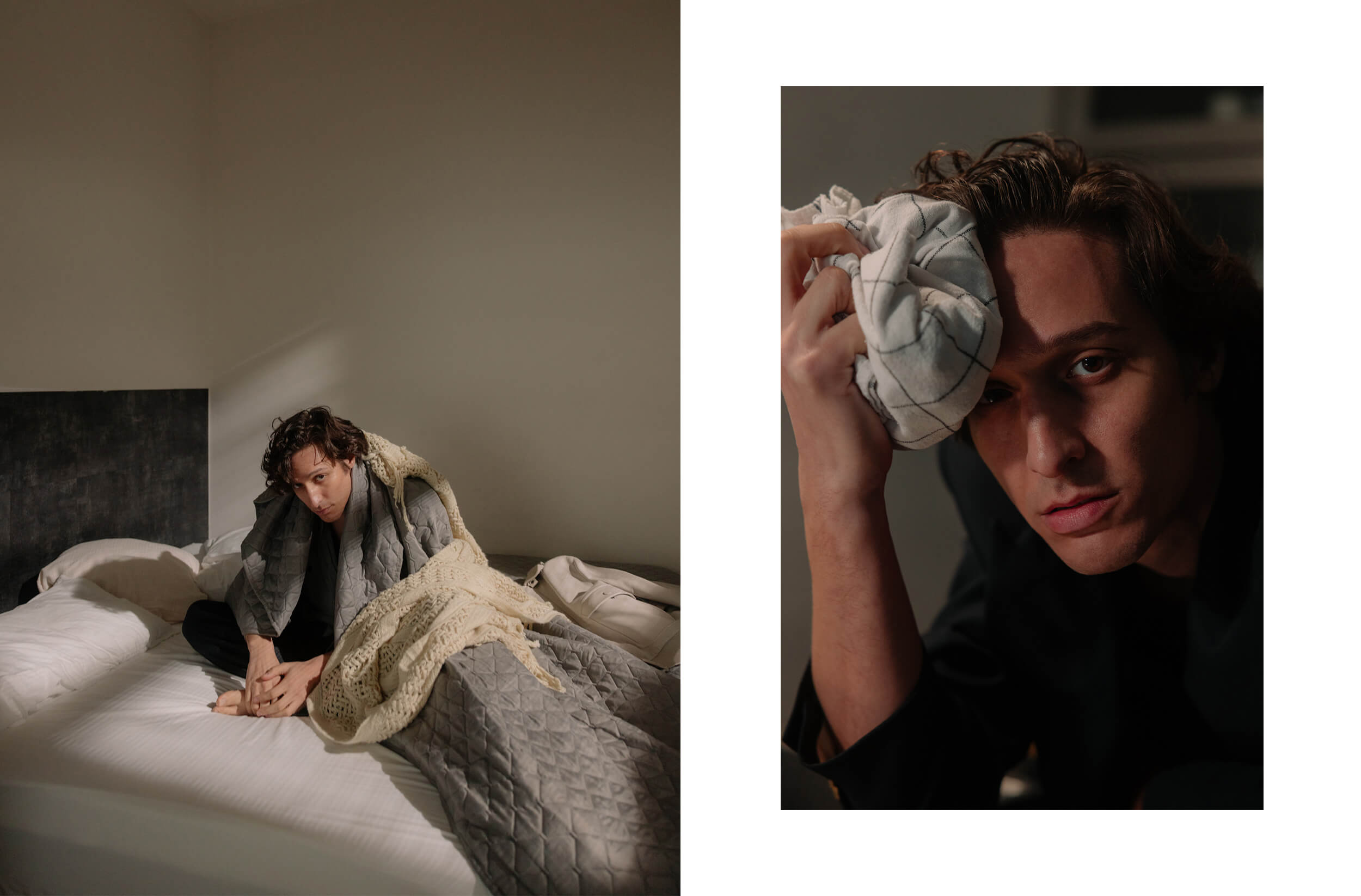“What are you thinking about?”
It’s a question that seems so simple, yet is profoundly complex. It implies being present in the here and now, being centered within oneself. It’s the question everyone asks Parthenope, the protagonist of the eponymous film by Paolo Sorrentino. And it’s the same question we asked Dario Aita, the actor portraying Sandrino. It was the final question in chronological order during a deep and honest conversation in which Dario spoke to us about his characters and, in turn, about himself.
We talked about the nuances of love and how it’s always a new emotion, about the feeling of time passing, about the deep bond formed on the set of “Parthenope” with the other lead actors and the director, about the magical dynamics of connection, and the ability to let oneself be observed. Among memories of past experiences, the beauty of the present moment, and hopes for the future (including his aspirations as a director), Dario Aita is our December Cover Story.
What is your first cinema memory?
The first time I went to the cinema, I watched a cartoon, “Aladdin”, and it’s an experience I’ll always remember. I have few memories from my childhood, but this one is quite vivid.
Another vivid memory is when I saw “The Dreamers” by Bertolucci. I must have been about 14 years old. Back then, I didn’t usually go to the cinema because I was quite broke. Instead, I’d record movies on TV and watch a lot of videotapes—I had a pretty big collection. So, watching “The Dreamers” was one of the very few times I physically went to the cinema. That film opened up a whole new world for me in every sense. It was a formative story that shaped my adolescence in terms of political engagement, art, cinema, love, and sex. There was so much in it that opened doors for me.
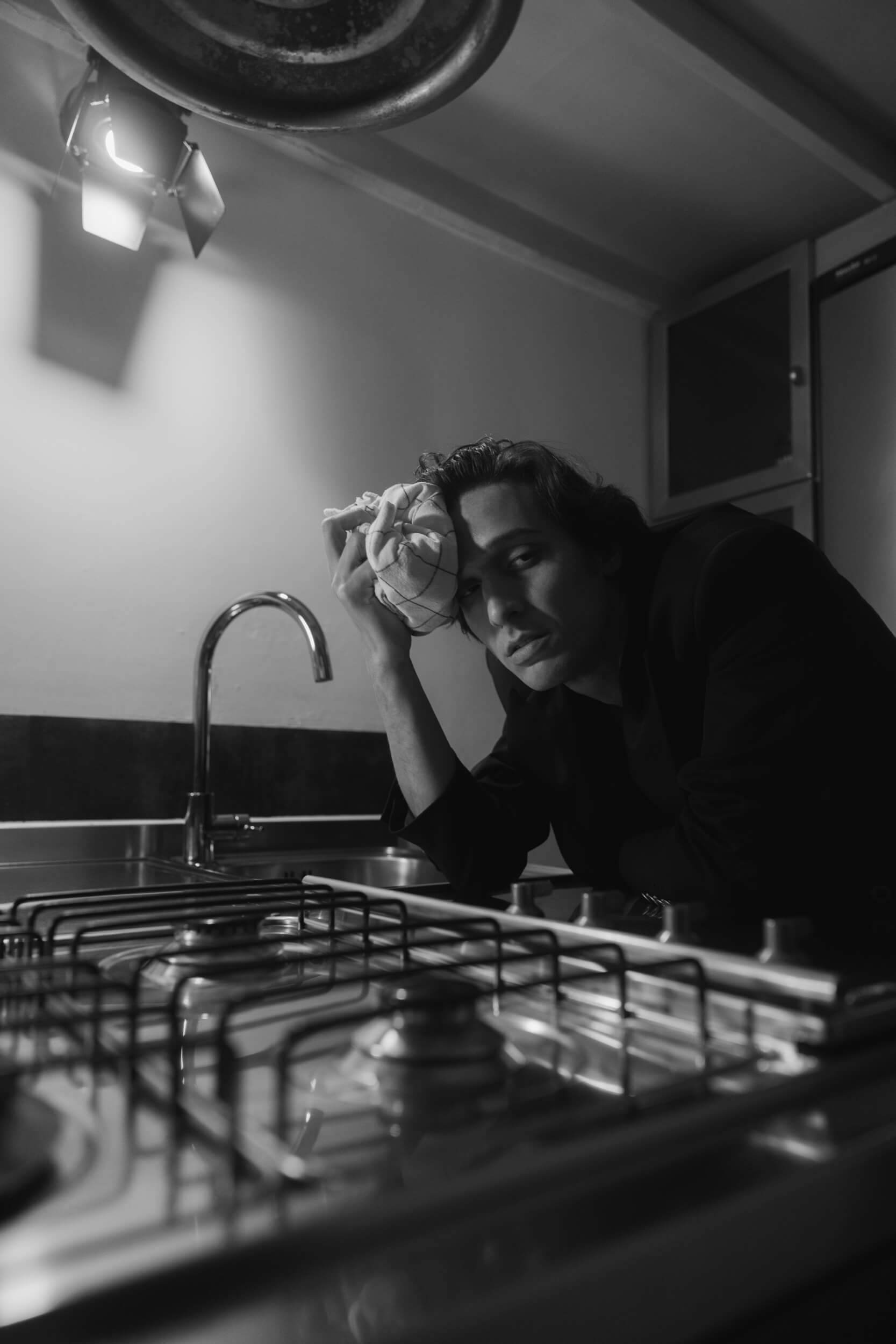
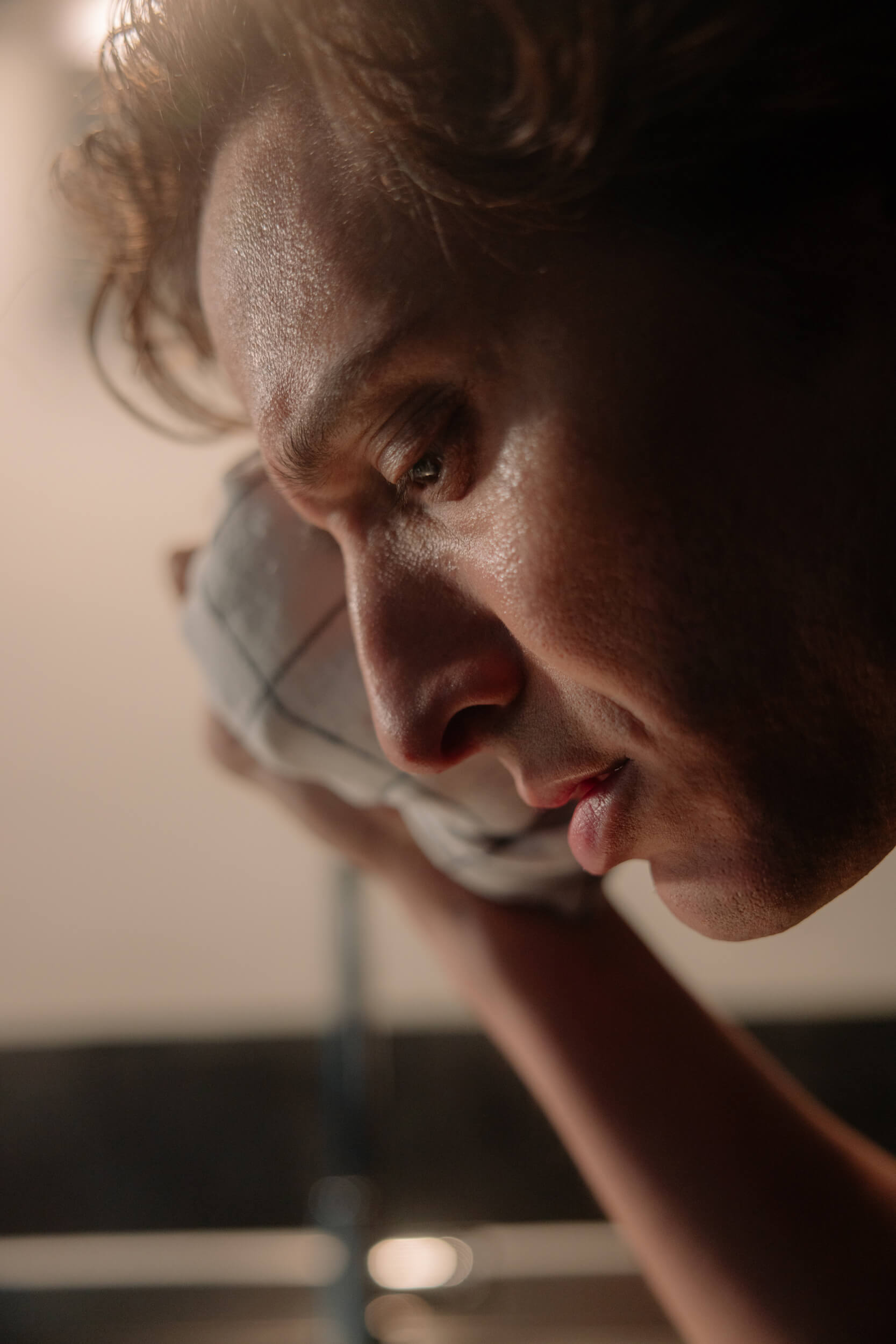
It’s interesting that you later found yourself involved in a project like “Parthenope”, which has some parallels with “The Dreamers”!
Yes [laughs]. I actually rewatched it before starting the shoot because I thought Michael Pitt’s character might help me in some way. It’s part of a kind of literary topos: the young man in love, living an impossible romance. Another similarity between the two stories is the third element within the relationship between two siblings with romantic tensions. And then there’s the idea of the outsider, another topos: in Bertolucci’s film, the outsider is the American arriving in Paris, while Sandrino is an outsider in his family because of his different socio-cultural background and the way he’s received.
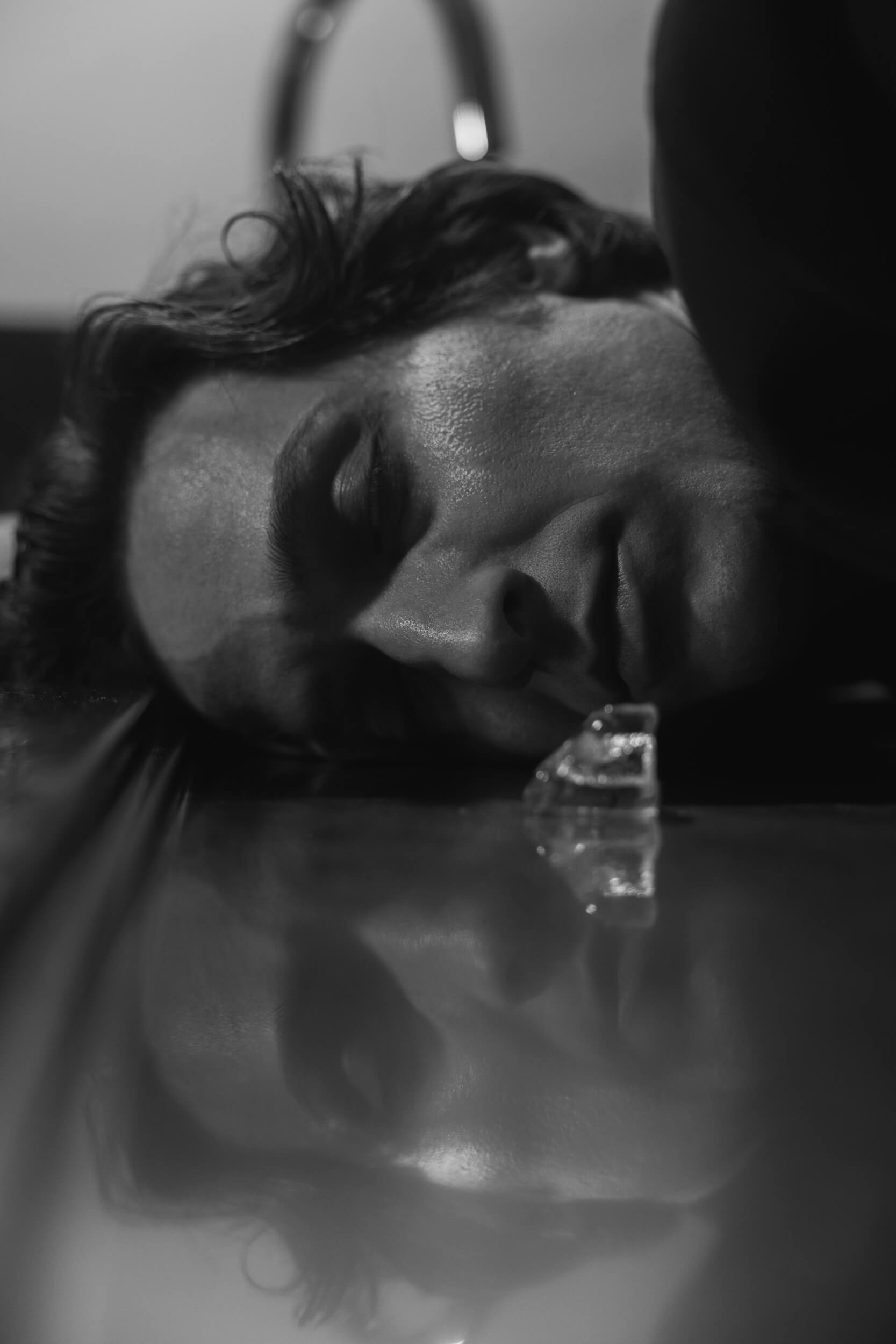
The triangle involving your character Sandrino, Parthenope, and Raimondo represents a dynamic where emotion, obsession, naivety, and fragility meet and clash. How did you build such a “complex” relationship with Celeste and Daniele?
Paolo put us in very favorable conditions to create our connection. He introduced us almost a year before shooting began, which is unusual because you usually meet your colleagues shortly before filming, if not directly on set. Then, once we started shooting, Paolo was a great guide in managing or suggesting alternative approaches beyond just getting to know each other.
You know, sometimes day-to-day familiarity can undermine the mystery we should try to maintain between colleagues when working on characters. Knowing you as a person could be a double-edged sword because I might need to explore parts of myself that are relevant for the role – this is a strictly professional process that goes beyond personal matters – and that helps build a favorable encounter on set between the characters.
But sometimes, when you start liking the people you’re working with, as happened between Daniele [Rienzo], Celeste [Dalla Porta], and me, it’s easy to forget the work and just get lost in each other. We’re all quite young, and Celeste and Daniele are very funny people, so it was easy to quickly establish a filter-free friendship, without pretenses or objectives. In this sense, Paolo was helpful in guiding us to channel our energies consciously toward what was needed on set. That’s because, while real-life encounters are beautiful, sometimes a scene on set can paradoxically feel more surprising and authentic than the intensity we experience in daily life.
“…while real-life encounters are beautiful, sometimes a scene on set can paradoxically feel more surprising and authentic…”
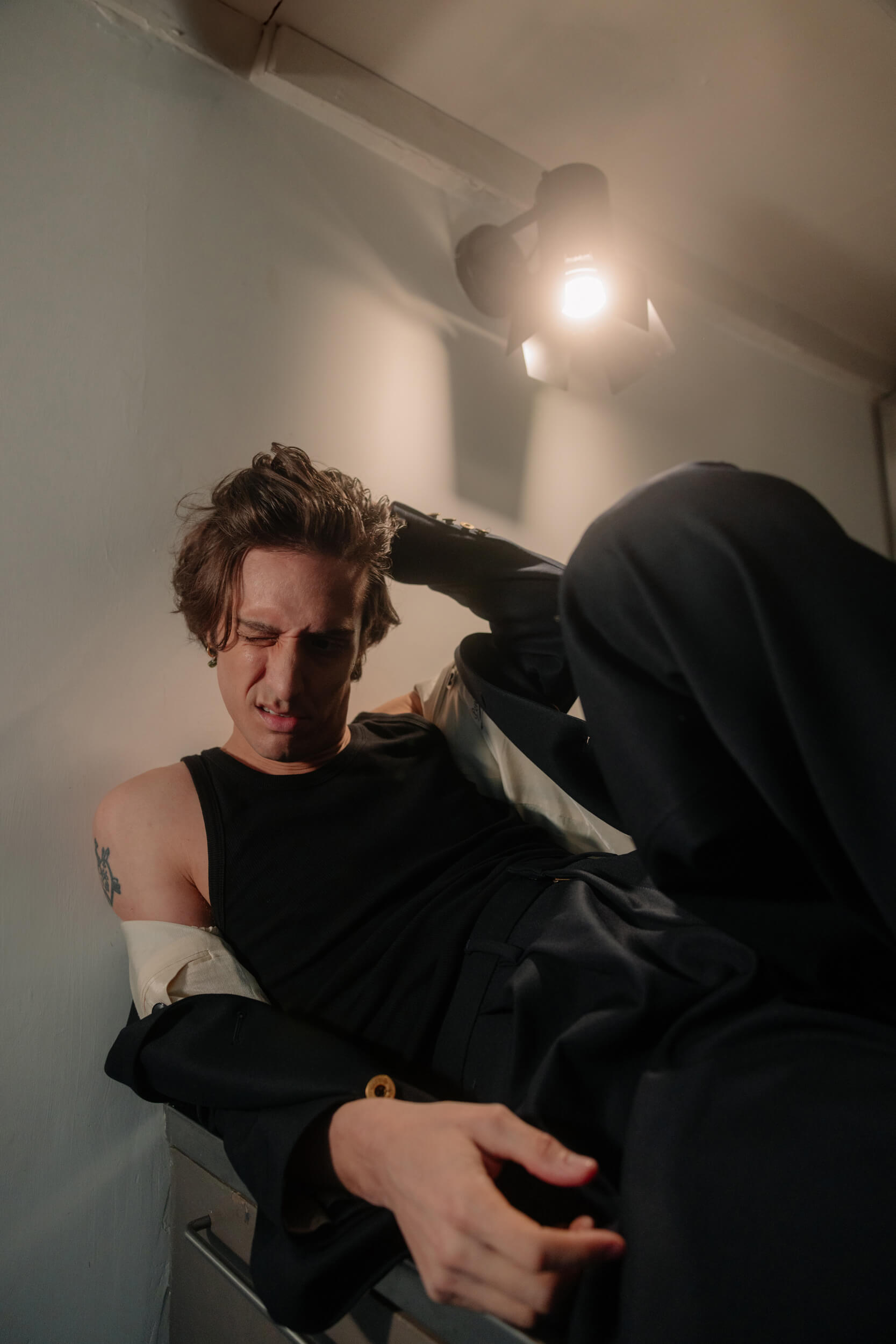
What surprised you most about your colleagues on “Parthenope”? I imagine portraying everything in the film was a very emotional and deeply felt experience.
It’s hard to sum up in a single word what surprised me. They’re all people with strong personalities, each in their own way, with remarkable sensitivity. Whenever you encounter souls that sensitive and personalities that strong, it always changes you—it shifts your balance. The encounter challenges you; you think you’ve arrived with certain certainties, but then your colleagues “move” them because they bring their own certainties too.
Working with Paolo was surprising every day – each day was full of different and electrifying stories.
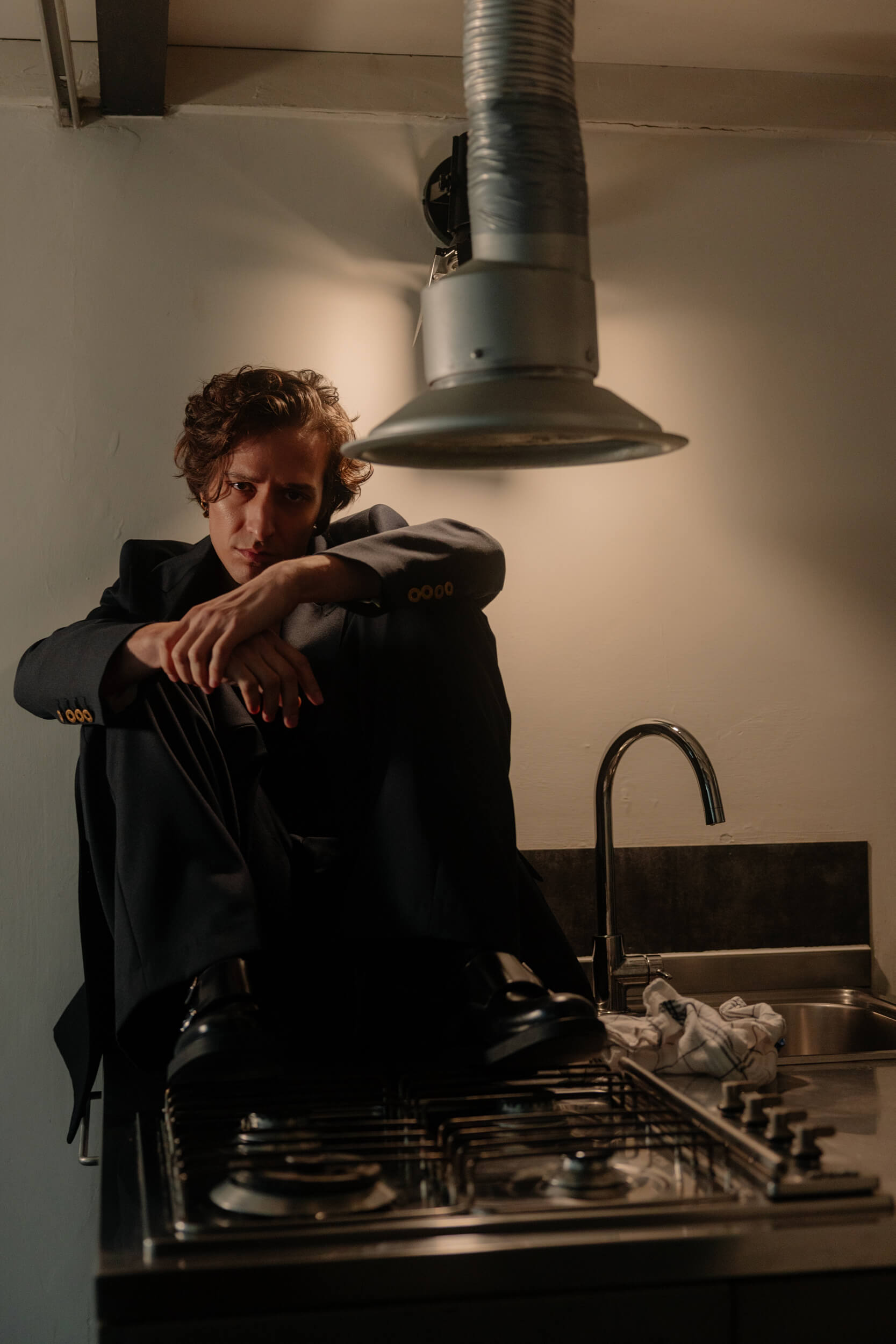
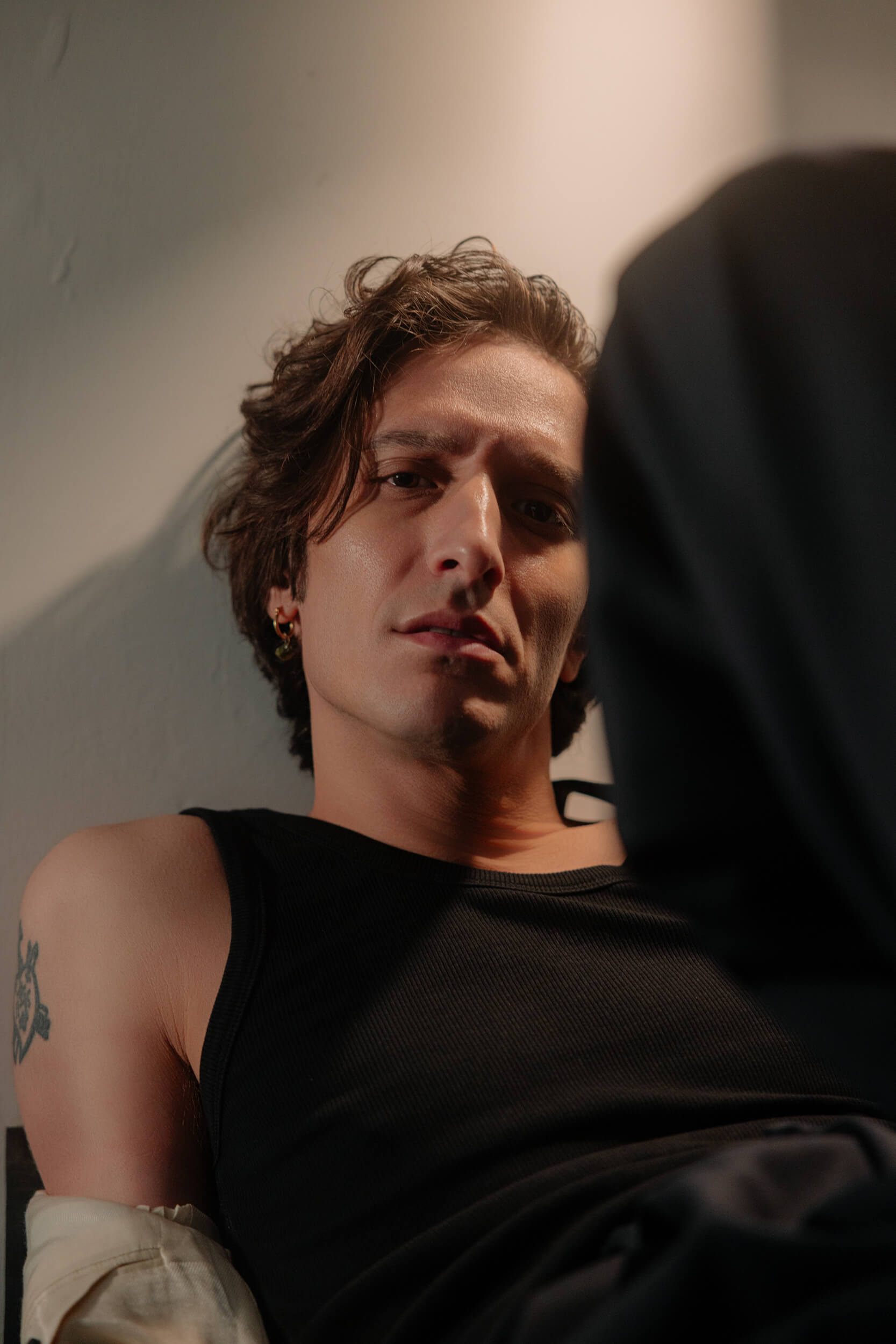
What was it like meeting your character, Sandrino? He represents youthful love – a nearly all-consuming sense of devotion and admiration for someone. How much of yourself is in this character, and how much did he leave with you?
There’s everything of me in the character. In every character you bring to life, there’s all of yourself. I don’t think it’s possible to play a role that has nothing of you; even when playing a serial killer, you’ll have to draw on hidden parts of yourself, secret desires, taboos, that instinct for violence that’s part of all of us as human beings – but as civilized animals, we learn to manage, process, transfigure, and rework it. Cinema serves that purpose too, especially. Why are people so passionate about crime stories? Because it’s a way to process those secret, hidden, and shameful instincts that belong to our souls.
For the audition, I performed the “farewell” scene between Sandrino and Parthenope, and from that moment, I felt a strong connection to this character, the themes he embodied, and the contribution he made to the story. Sandrino represents one of the film’s main themes: the passage of time and the often-painful transition from youth to adulthood. That theme has always resonated with me. Then there’s the theme of unconditional love, which Sandrino feels for this woman – half human, half deity in his imagination.
I too fall deeply in love with people and things, so that kind of love definitely resonates strongly with me.
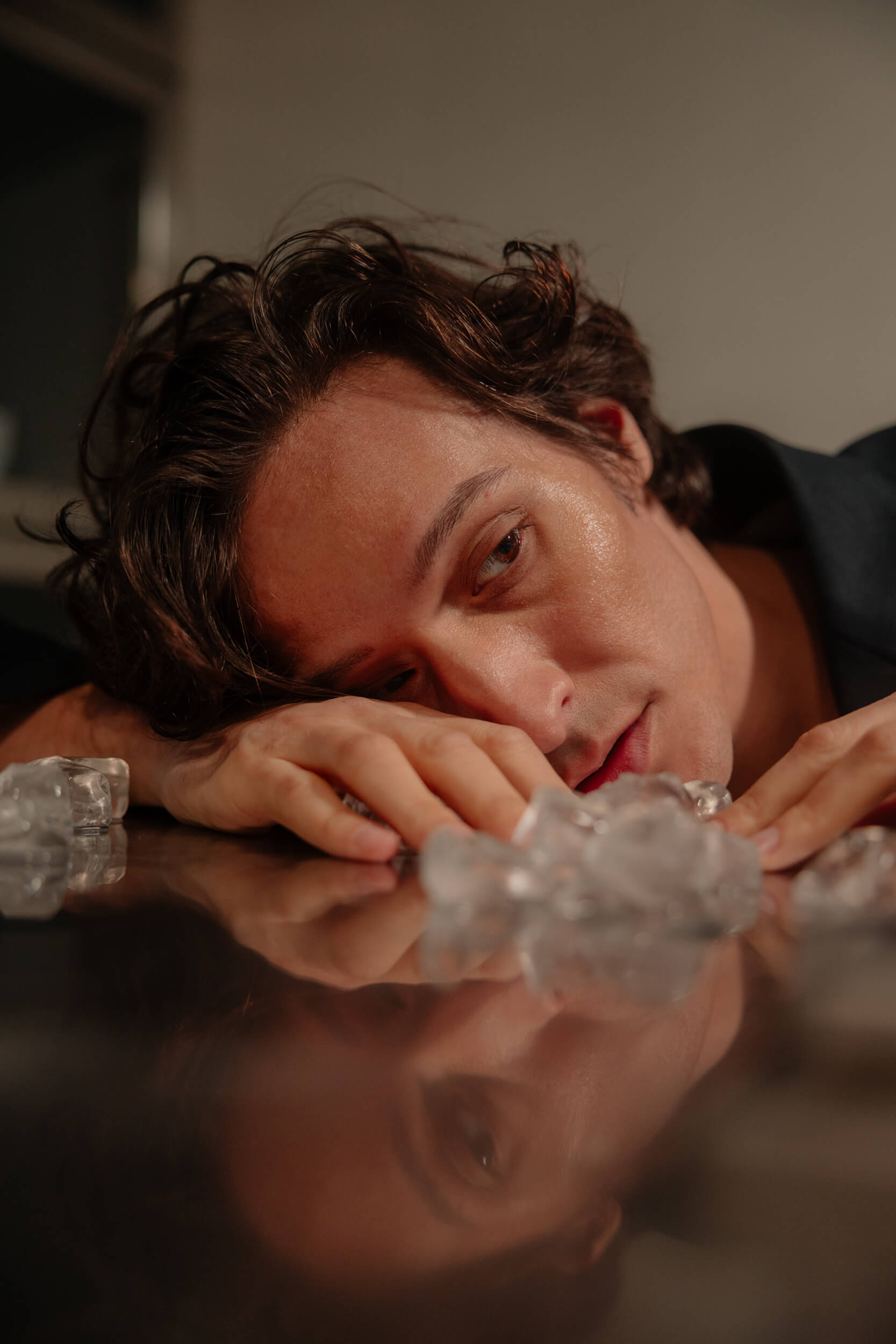
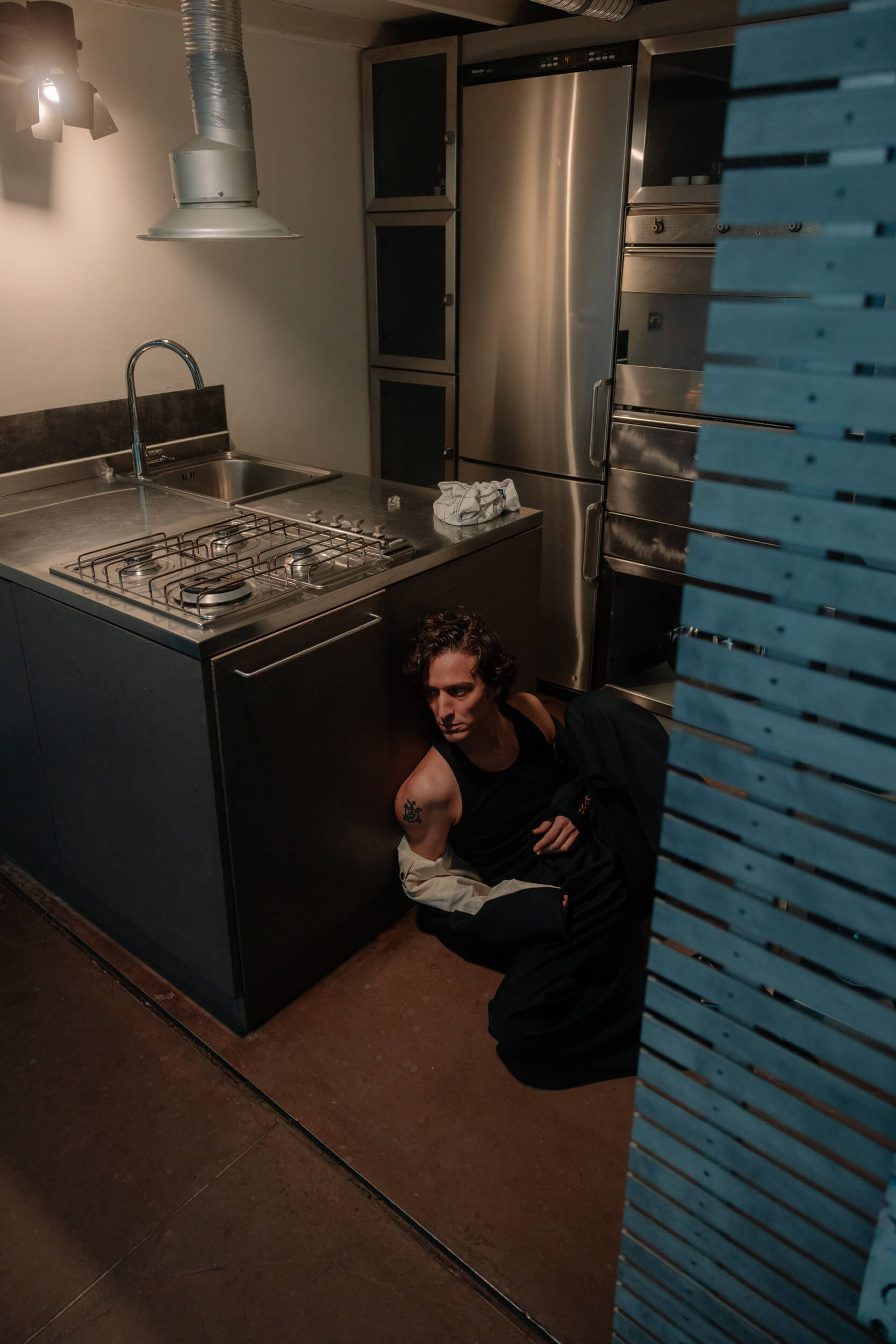
“I don’t think it’s possible to play a role that has nothing of you”
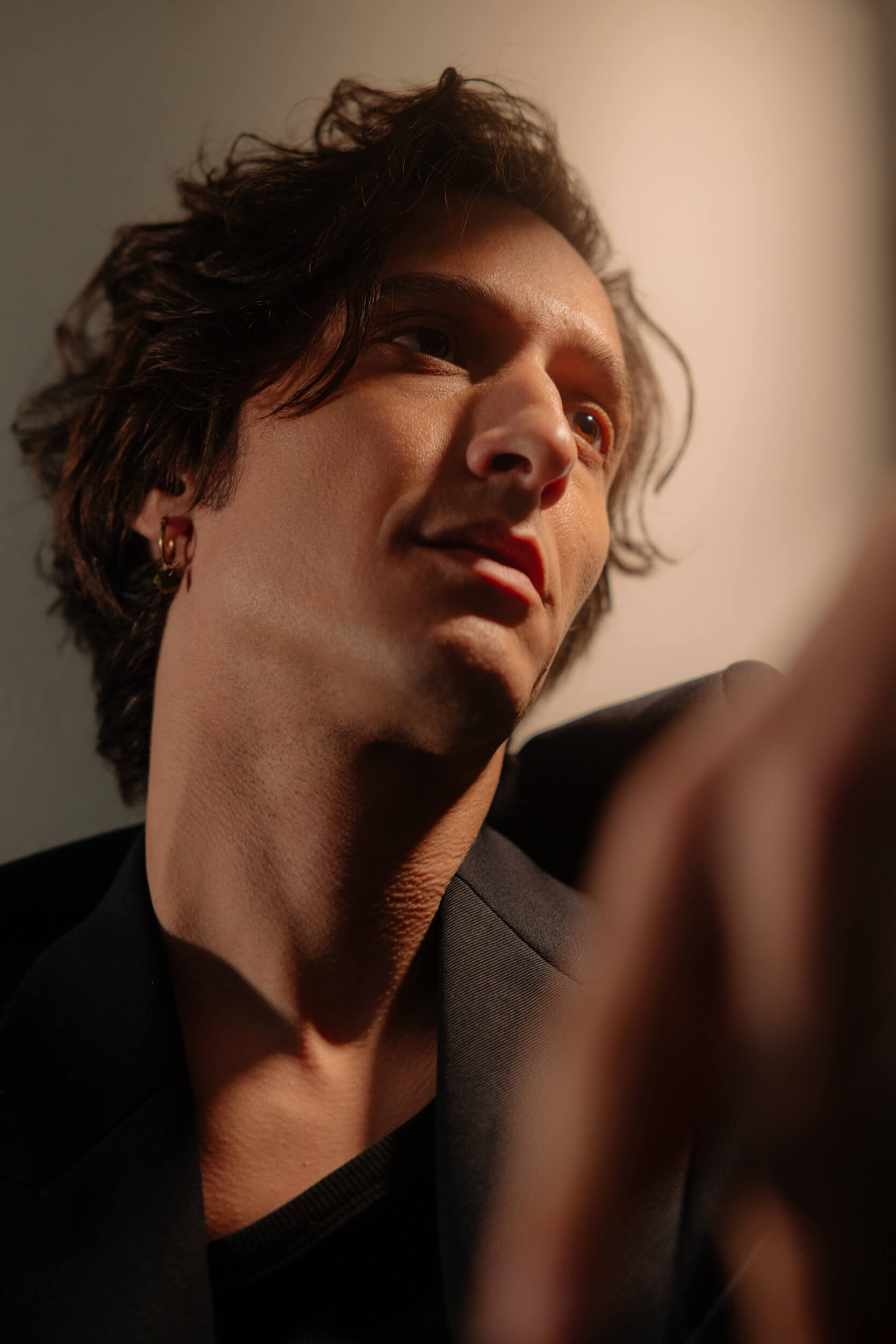
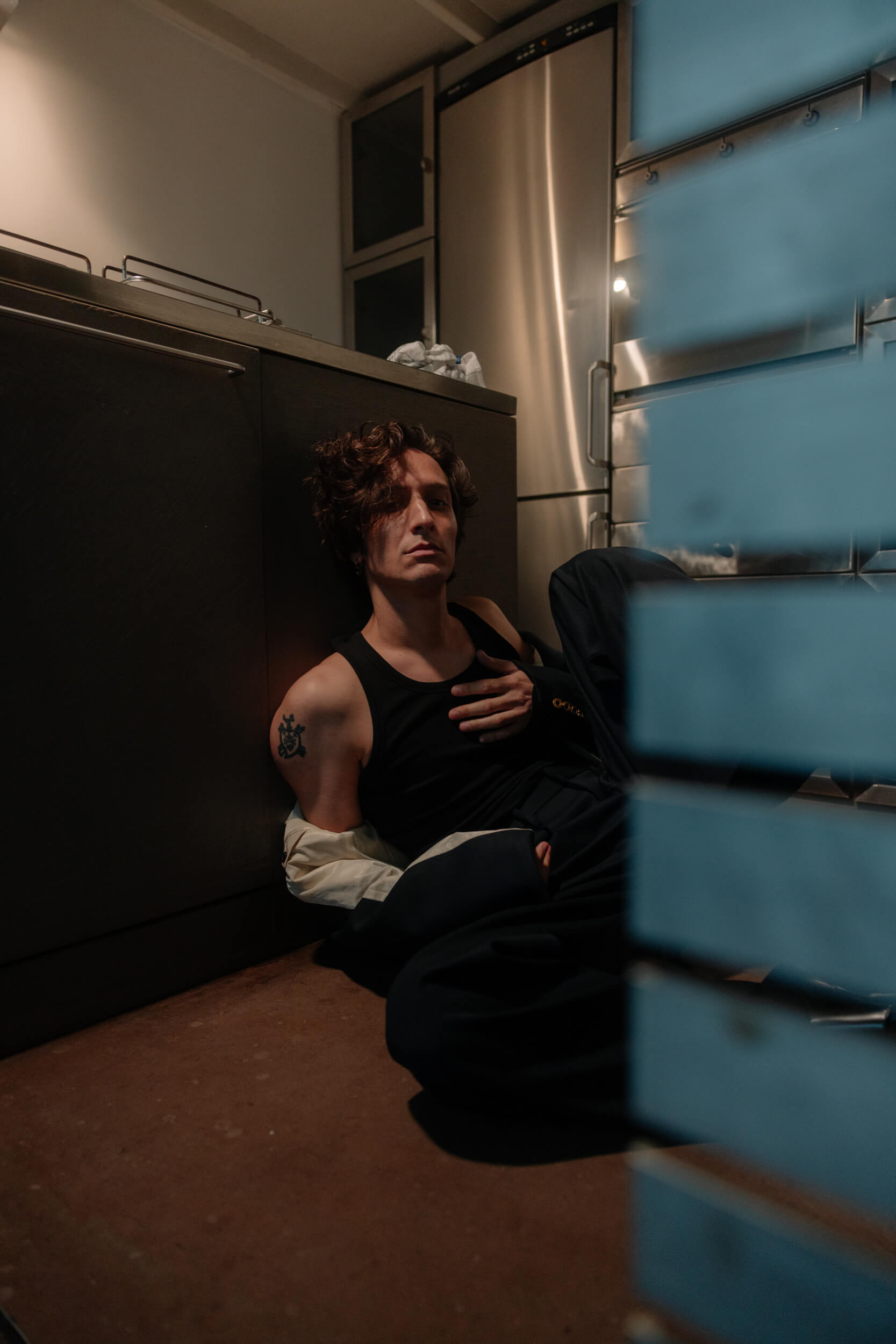
You’ve anticipated two of my next questions: how do you experience the passage of time, and what type of love fascinates you most, even as an actor, given the various representations of love in the film?
As I was saying, the passage of time is something I feel deeply. I sense time passing very quickly – it’s as if I have a great debt to my adolescence. I’m not sure if I truly do, because I think I lived it fully, but I’ve always felt this sense of owing something to life, as if I want to experience everything, even though I know there isn’t enough time or possibility to do so. This debt makes me feel that time passes both faster and slower—a great paradox. When you’re living in the present, like during youth, time flies, but you don’t realize it; noticing how quickly time flows, on the other hand, leaves you with a strange sensation of stillness, stasis, which can sometimes be frightening.
As for love, it’s hard to pinpoint. My partner and I recently had a daughter, and one thing I often say is that I’m discovering a completely new form of love, something I’d never known before. I didn’t think that at 37, I’d have the chance to discover such a new type of love. It’s been very surprising – loving my daughter is an entirely new emotional experience: it’s like seeing something you’ve never seen before, tasting a flavor that you’ve never tried.
Professionally, I love falling in love with the people I work with. I always put in a lot of effort to make it happen because I think it benefits the film. During filming, I fell in love with Daniele, Celeste, and Paolo – they were the three people I shared both happy and less happy moments with. Thankfully, we formed a beautiful bond of love and sharing.
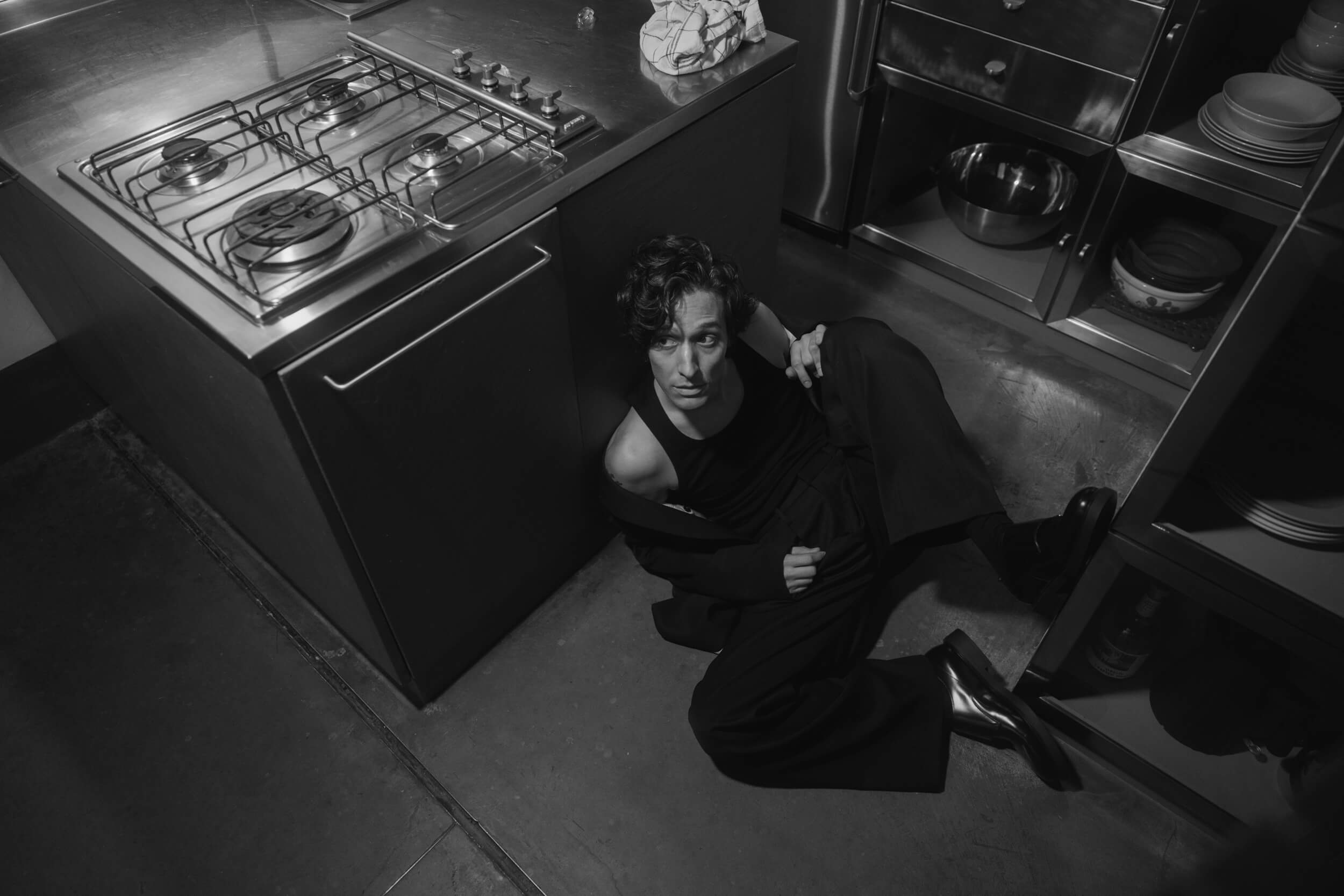
A major protagonist in Sorrentino’s storytelling, and perhaps more than ever in this film, is Naples, which seems almost like a character itself, with all its nuances, beauties, and complexities. How did you experience this city and also Capri while shooting the film?
I’m from Palermo, a port city that has a lot in common with Naples, both in the kind of city it is and the humanity you encounter: that warmth, that noise, that chaos that comes with it and that is both the curse and the blessing of these two cities. It’s beautiful to lose yourself in that chaos, the feeling of living in a dimension of freedom and limitless possibilities. In these cities, you can still experience that feeling of a “moveable feast”, wandering around at night, moving from one bar to another, meeting new people, and talking with strangers. Naples still preserves that sense of hospitality, but at the same time, the city’s great freedom clashes with the freedom of others, and sometimes that feeling of elusiveness – the chaos itself – becomes a bit overwhelming, the noise excessive, and you feel the need for a little peace.
If you want peace, Capri is the right place.
In my opinion, beyond via Condotti, beyond the piazzetta – the Quisisana, so to speak – beyond that highly touristic and exposed dimension, which certainly isn’t where you’ll find peace, if you take a moment to lose yourself in Capri’s nature, visit off-season, and rediscover what Capri was before the 1950s, you’ll discover one of the most restful places you can visit. I lost myself a little in Capri’s nature during filming, and I must say that getting lost in nature is always wonderful, especially on islands, where you can reach the peaks and see a 360° view of the sea and the horizon: I think that’s one of the most restorative experiences you can have.
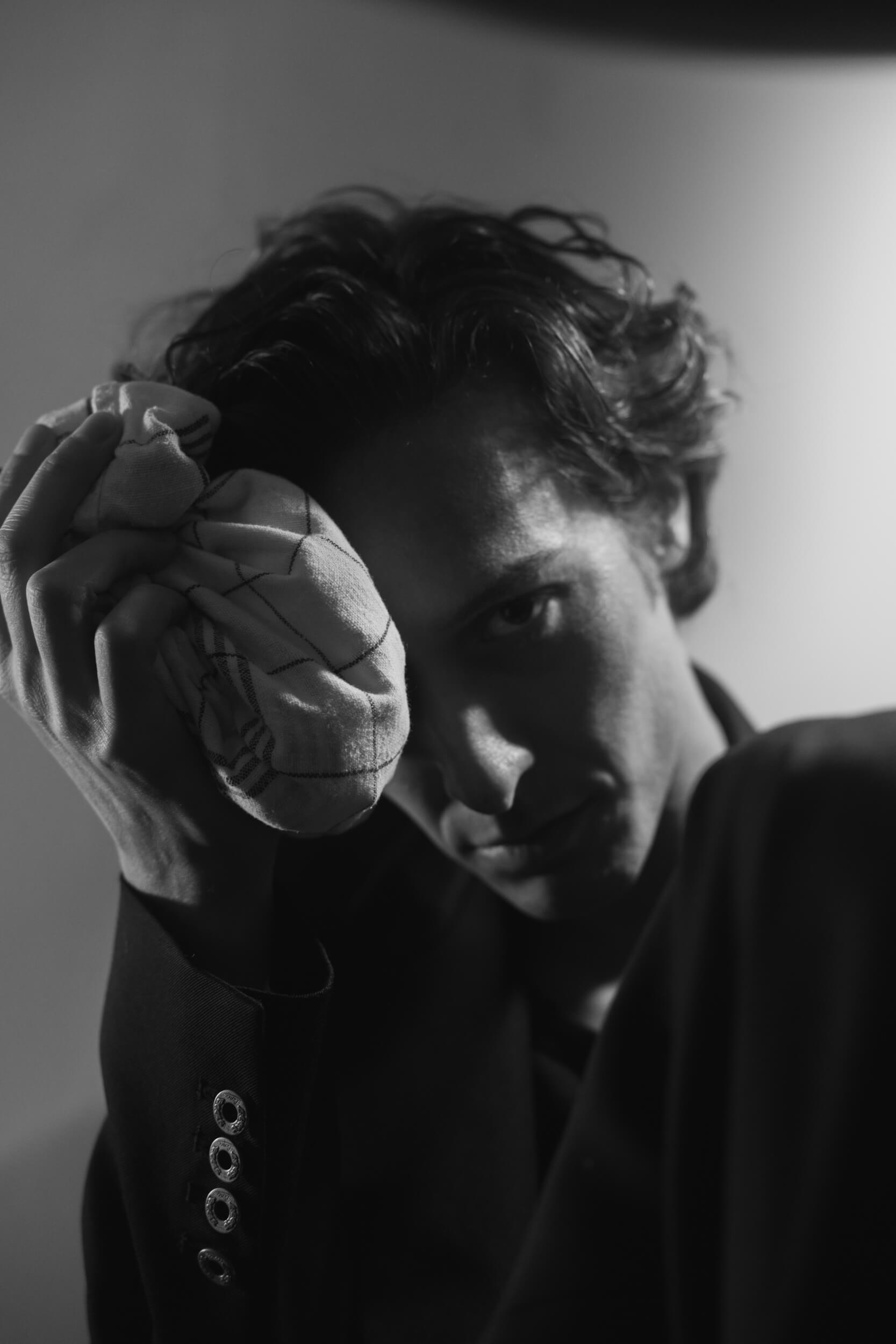
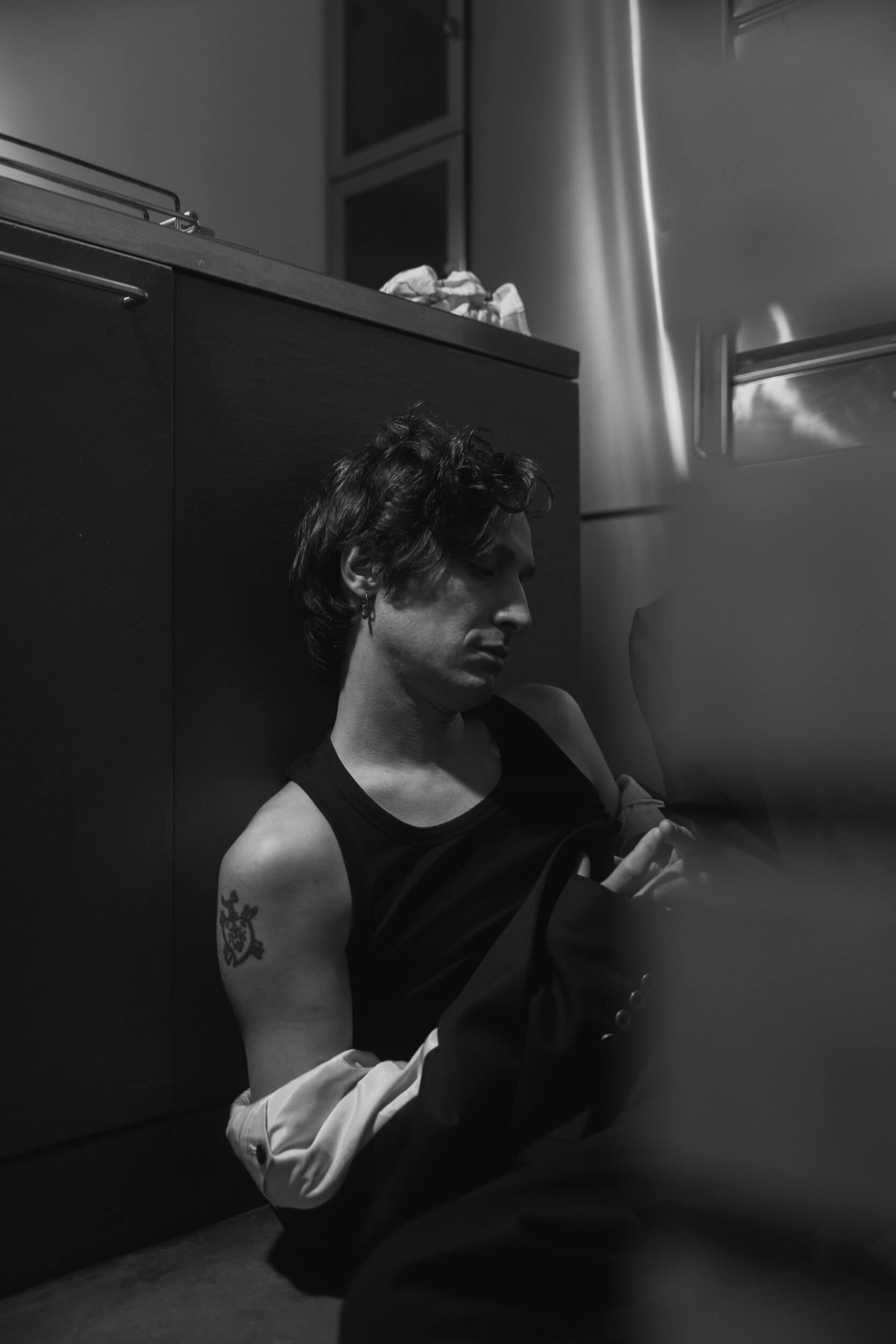
You mentioned earlier that you put your entire self into a character’s portrayal. Being an actor, on the other hand, also involves stepping into someone else’s shoes. Is it difficult to balance who you are and what you portray? What helps you “remember” who you are?
Theatre theorists might not agree, but I think the character-actor dichotomy has been overly exploited. These discussions often fall into clichés, and talking about myself as an actor and as a character has become a little harder for me lately, so I tend not to make a distinction. I am the character at the moment I’m called to play a role; it’s certain aspects of myself that, through more or less careful, in-depth, and exhausting work, I manage to bring out. I believe that each of us contains universes, infinite possibilities, infinite desires, infinite nuances, and an actor’s skill lies in discovering these within themselves and bringing them to the surface. Sometimes there are things you don’t want to bring out, things you’re afraid of, aspects of yourself you don’t like or don’t want to uncover, share, or reveal, and the challenge often lies there. That’s why some actors judge their characters – it’s a sort of defense mechanism: what we judge in a character is something that touches us closely, perhaps more than we realize.
People often ask, “How do you get back to yourself between takes?” I hope not to go back to myself; my constant job is to avoid returning to myself, to get as far away as possible from myself, from the narrative I want to tell about myself, from the character I’ve chosen for my life. Because, in the end, even what we are in life is a character, in some way. I try to avoid that everyday character and spend more time exploring another part of myself and nurturing it as much as possible. Sometimes that’s a bit risky because you can discover things about yourself that you hadn’t yet realized, and those things can shake you and your daily life. But if that happens, so be it. Then there are characters, and there are characters: Heath Ledger comes to mind as the Joker, or any role that brings shadows to light – it can be risky uncovering certain aspects in those cases.
In my case, I can say I’ve uncovered acceptable things.
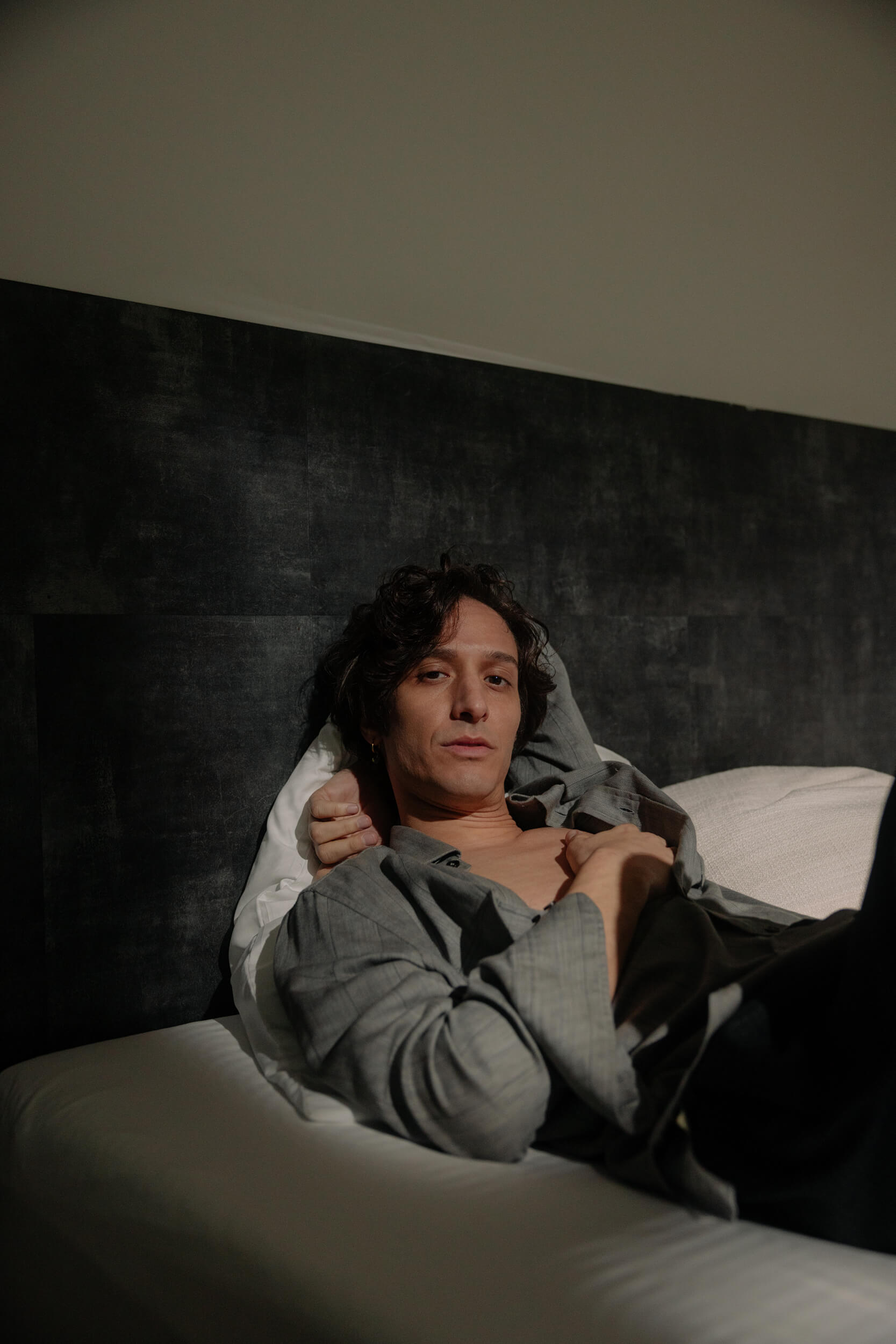
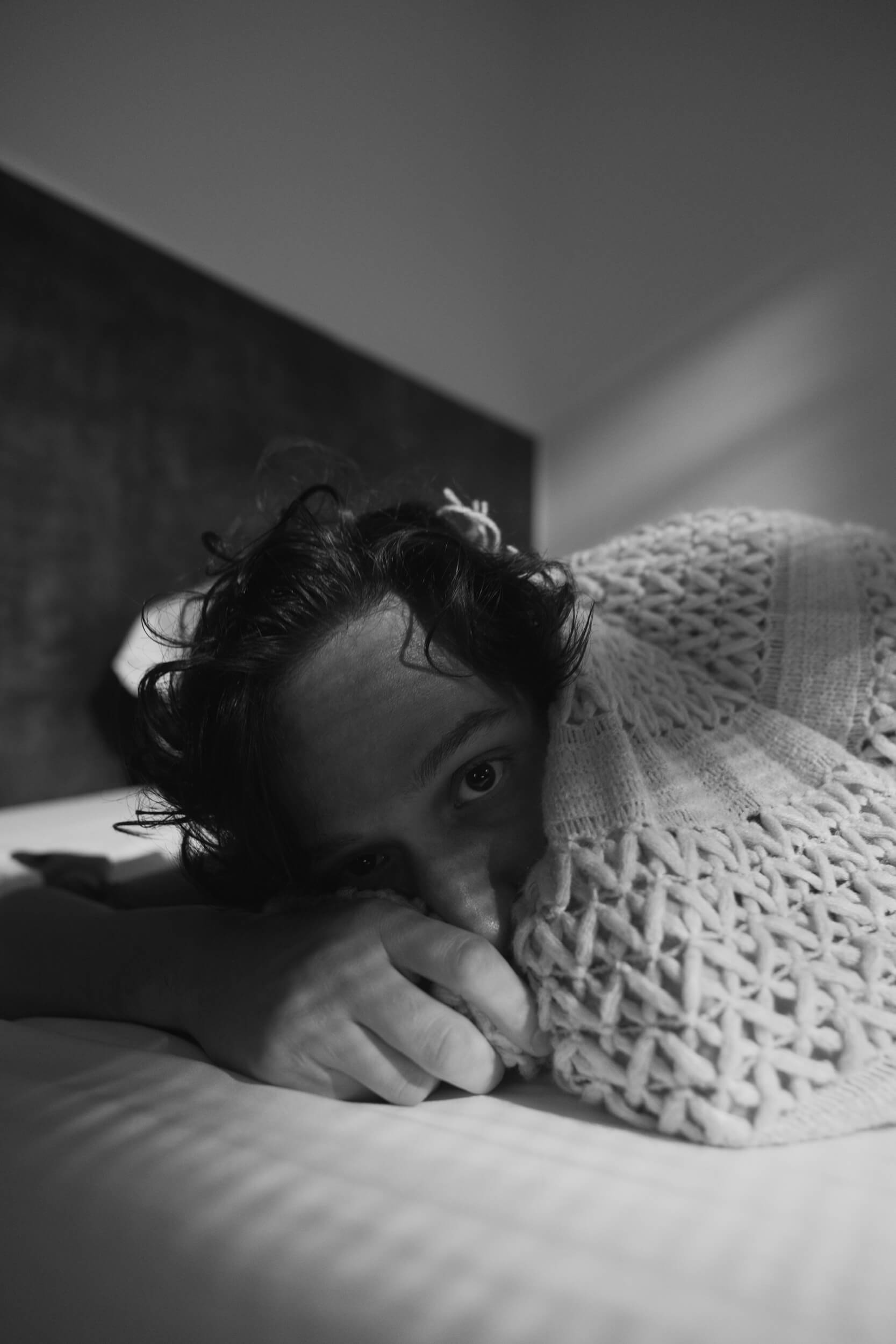
“I believe that each of us contains universes, infinite possibilities, infinite desires, infinite nuances, and an actor’s skill lies in discovering these within themselves and bringing them to the surface.”
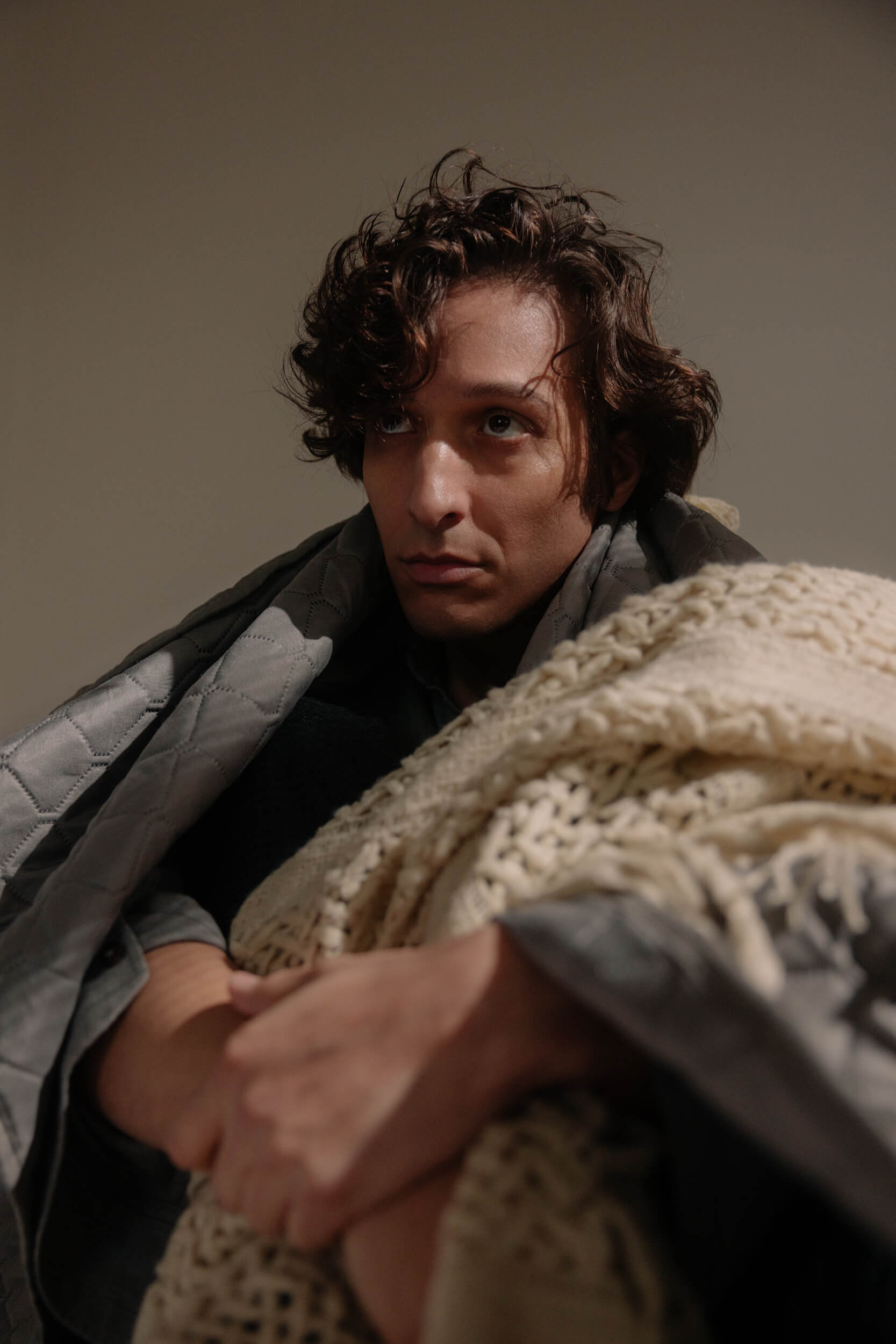
So acting is a way to know yourself.
For me, yes. Engaging with a character or a new piece of drama is always an opportunity for self-discovery.
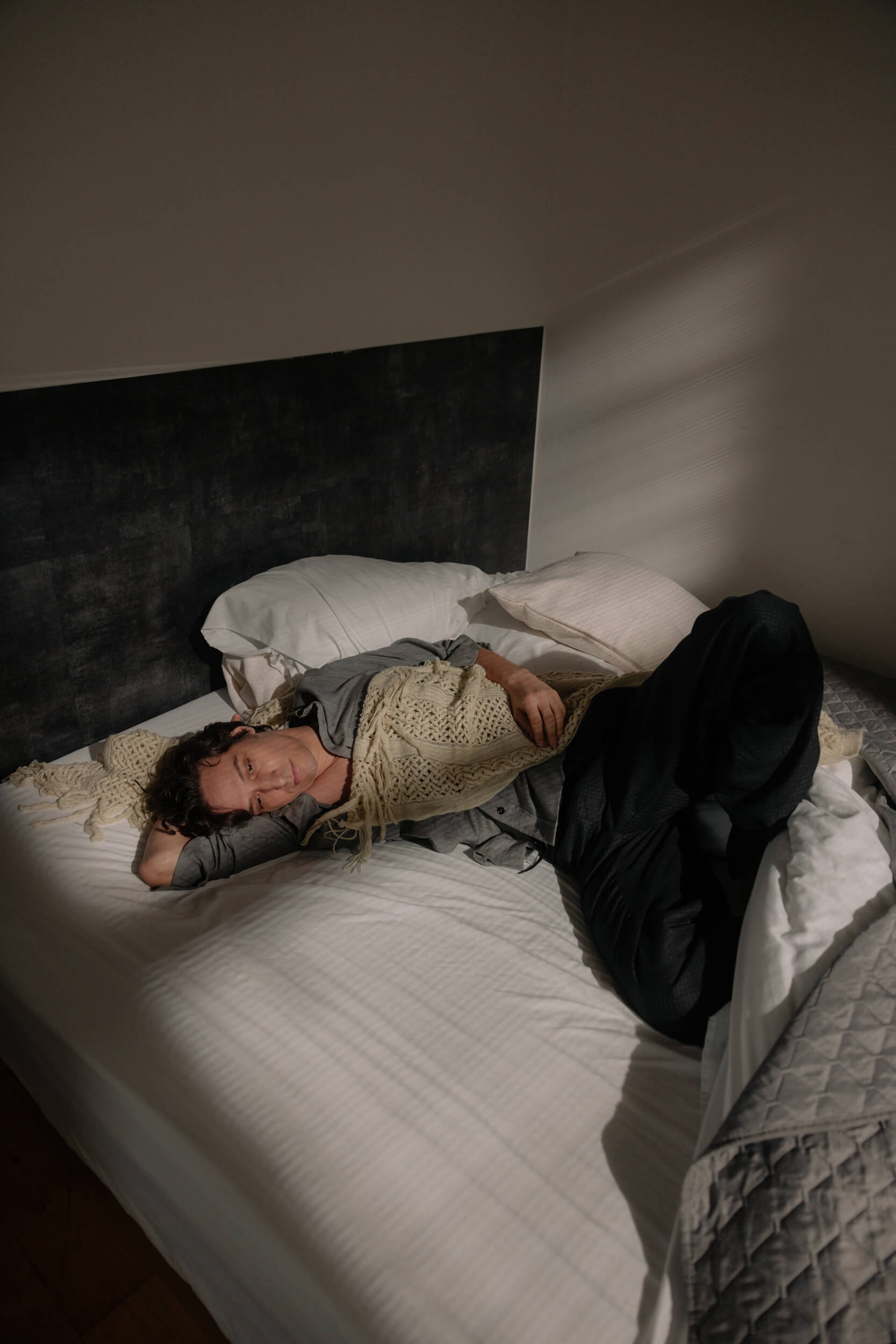
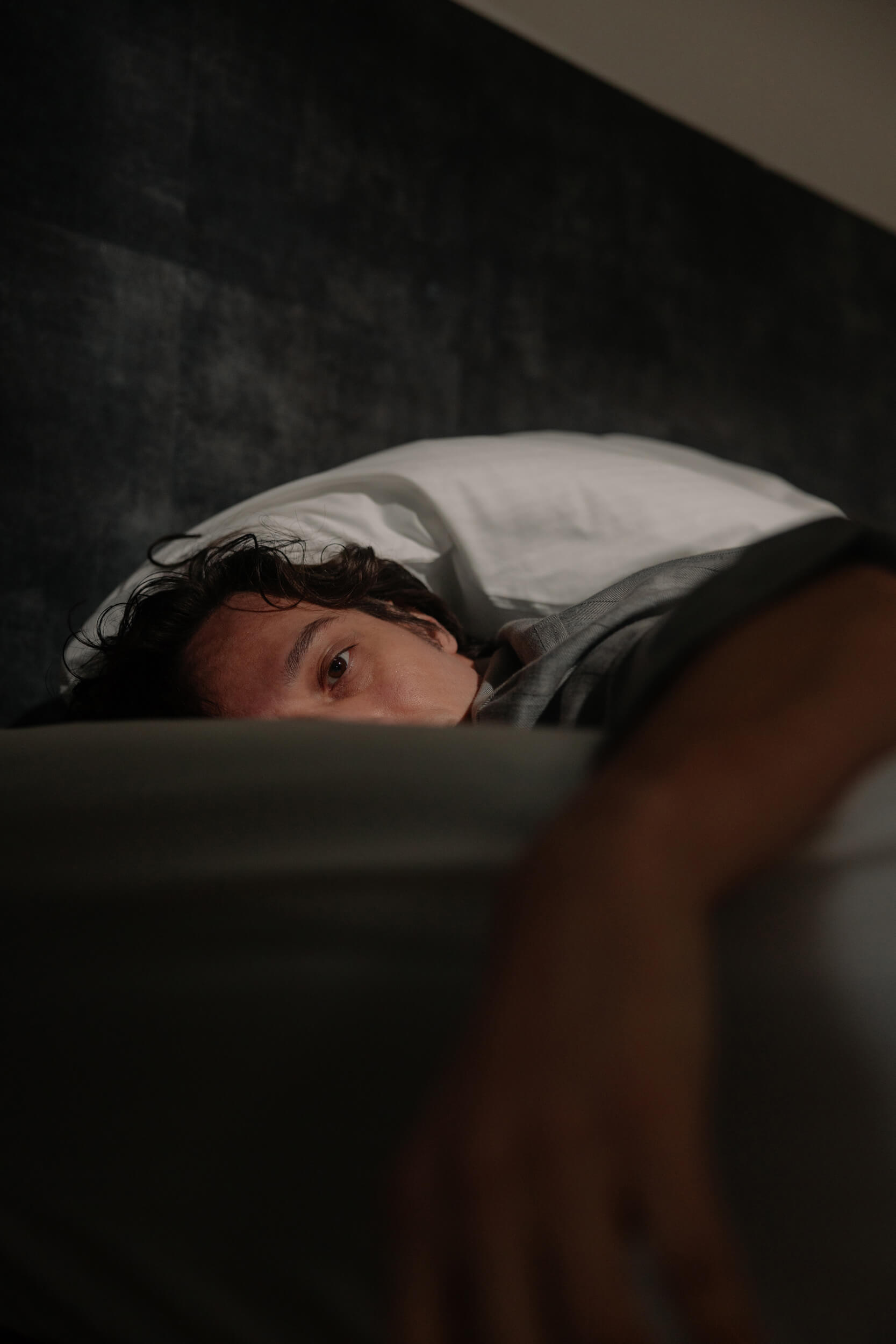
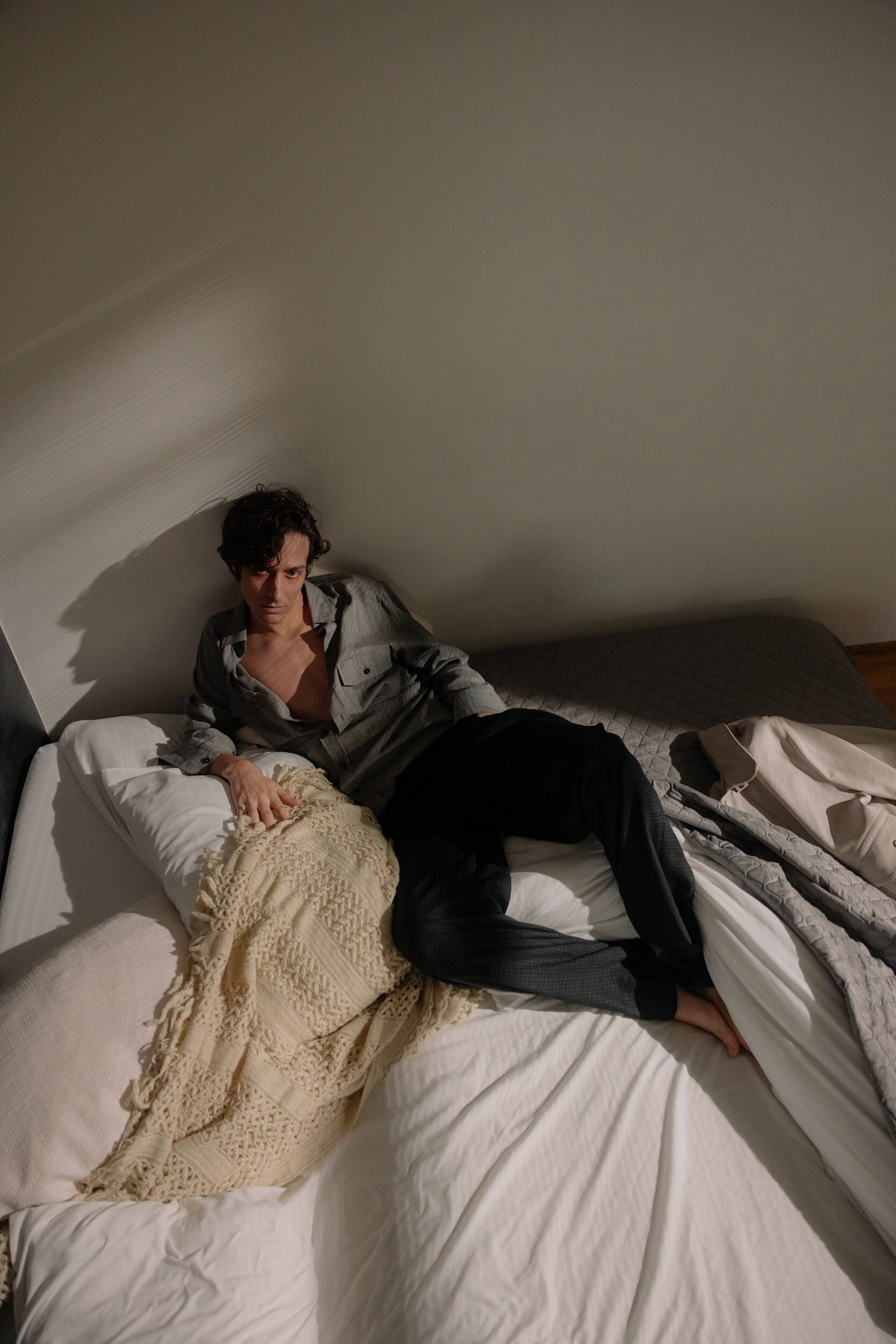
Would you like to approach directing and/or screenwriting one day?
Absolutely, yes, I’ve already done so. I’ve directed short films and medium-length films, and I’ve written things. These worlds interest me and have always fascinated me. I started doing this work more out of interest in directing than acting. I hope that one day this can find its space.
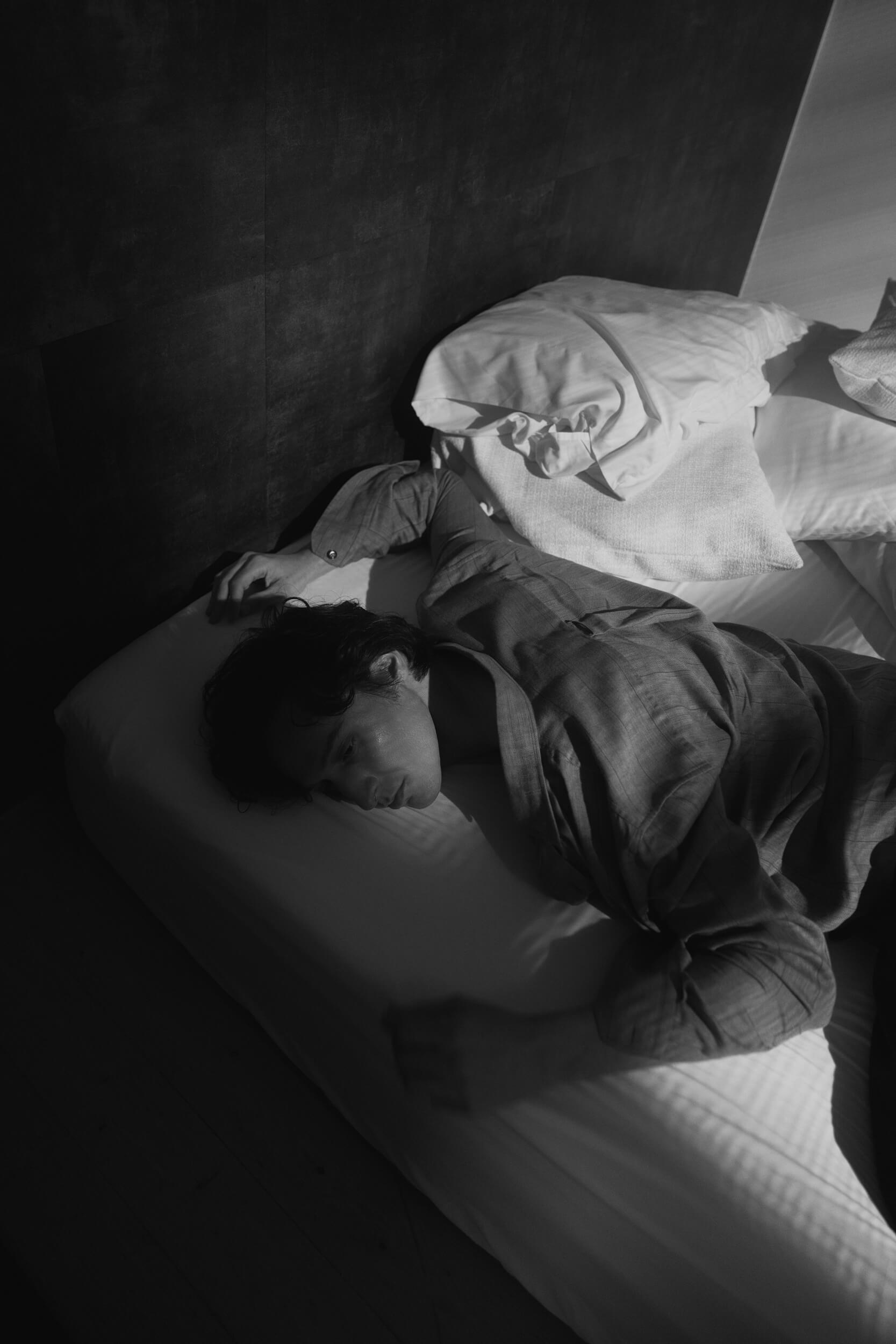
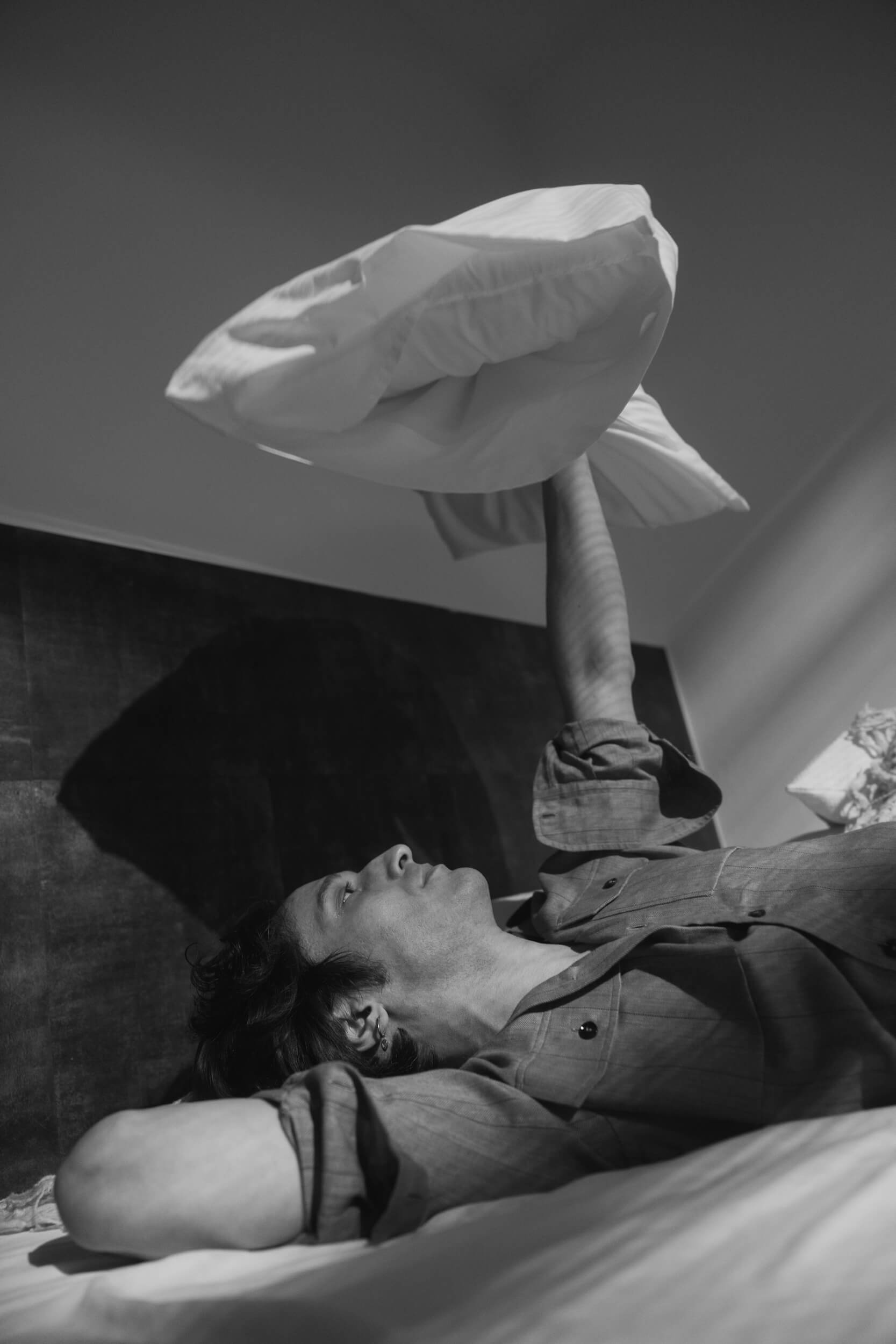
Saint Laurent Productions produced “Parthenope”, but I’m also thinking of the opposite experience you recently had as an actor, on the set of “The Law According to Lidia Poët”, which is a period drama. Are you fascinated by fashion as a world and as a way of storytelling? Because clothes, like films, tell a story.
Yes, I find fashion very fascinating – it’s a world that intrigues me a lot.
In the case of Saint Laurent, I think the encounter between fashion and cinema is a very happy one, with a Maison like theirs choosing to produce films. Saint Laurent has always stood out for its artistic commitment to fashion, beyond branding and markets.
Fashion – the word itself now has a dual meaning in our current language: “the world of fashion” and what is “in fashion”. Generally, I don’t like things that are “in fashion”, but the world of fashion as art is something I respect and observe with great curiosity and passion. I recently attended Saint Laurent’s women’s autumn-winter show by Anthony Vaccarello, and it was a spectacle in every sense, like watching a performance, a theatrical show, something wonderfully evocative, like looking at a painting or a film. That sense of wonder those creations gave was very similar. Then, of course, there’s everything else – the trends, the market – that are deviations of the matter. In particular, I’m very passionate about Saint Laurent, and I think Anthony Vaccarello is doing a wonderful job.
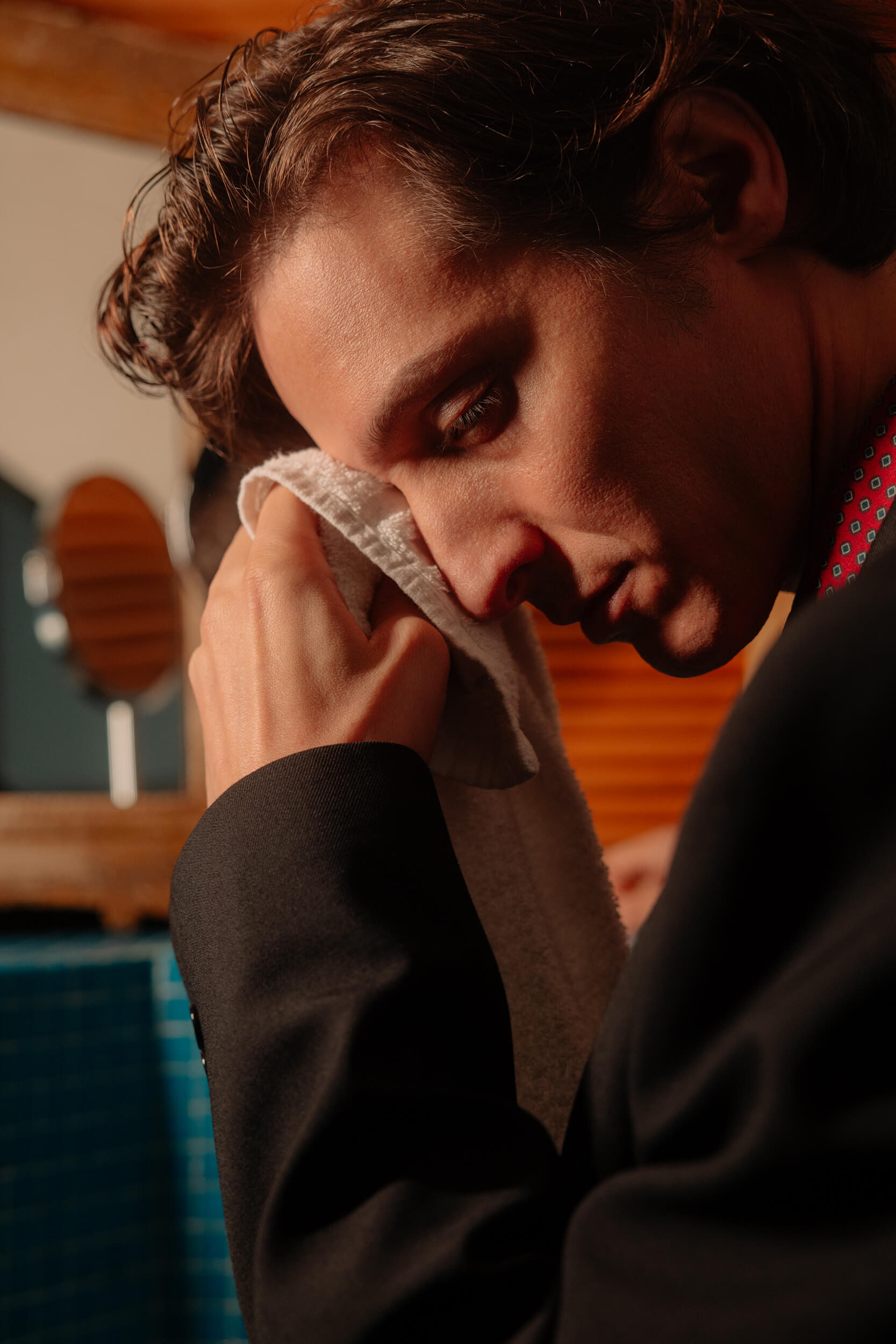
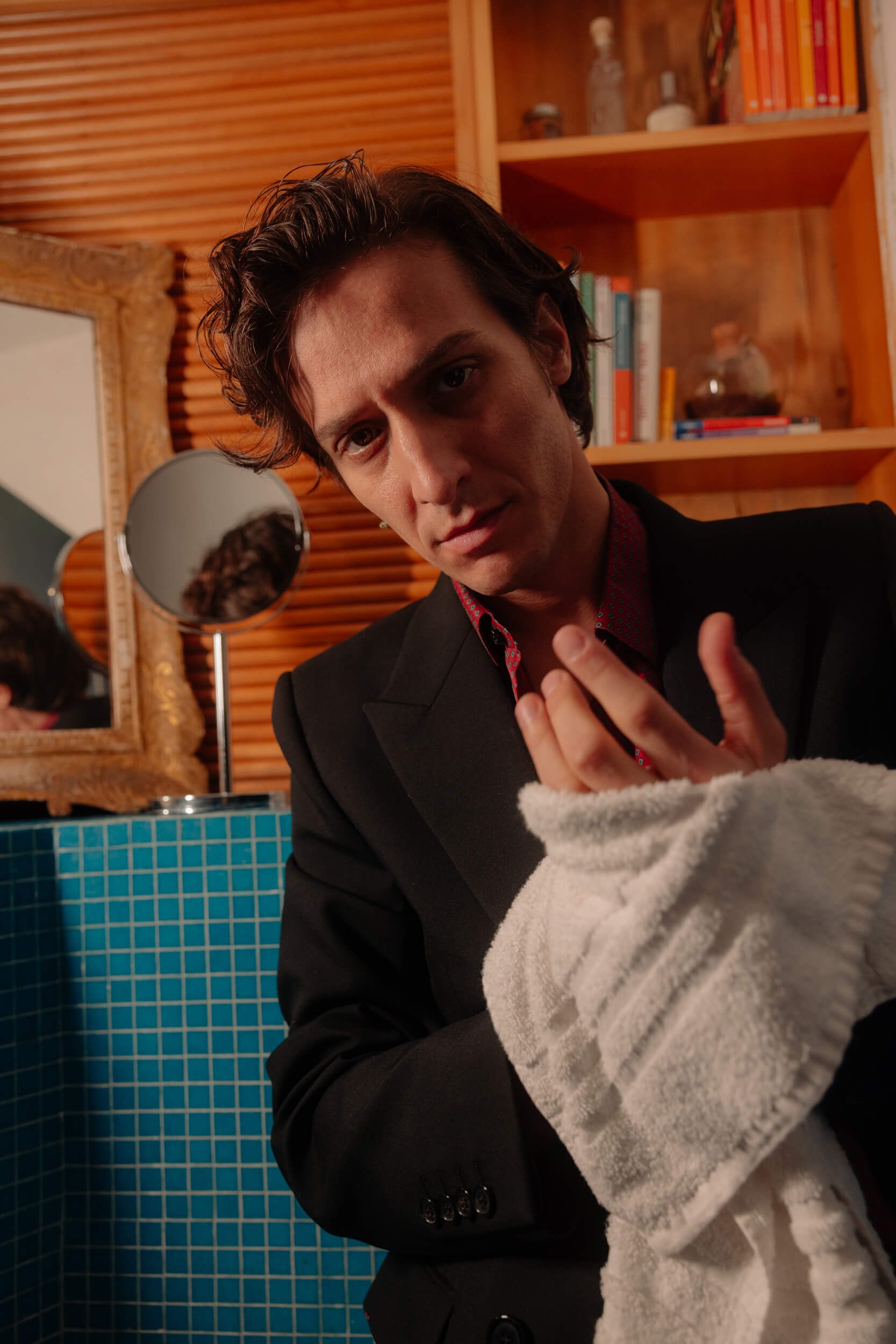
“Generally, I don’t like things that are “in fashion,” but the world of fashion as art is something I respect and observe with great curiosity and passion.”
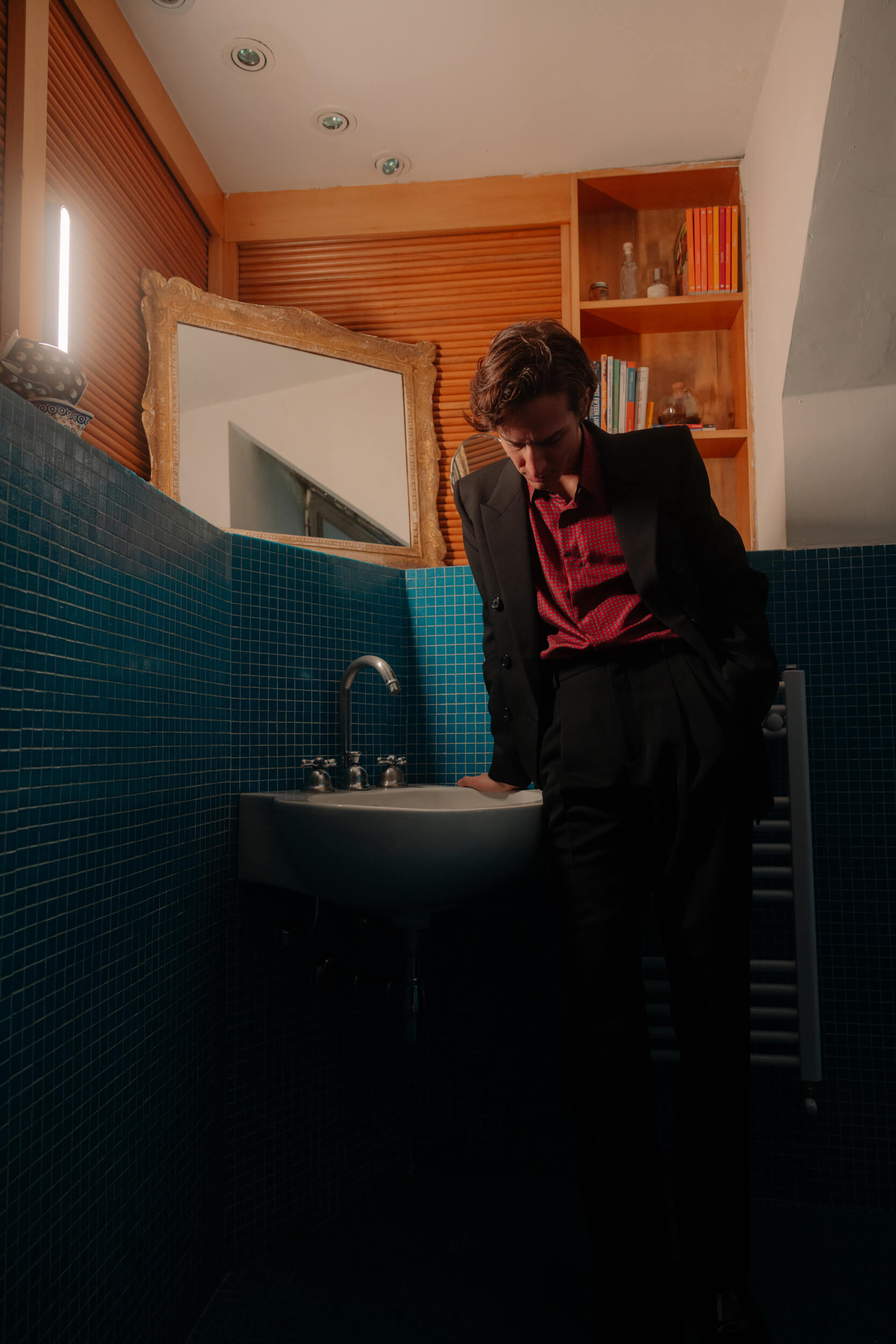
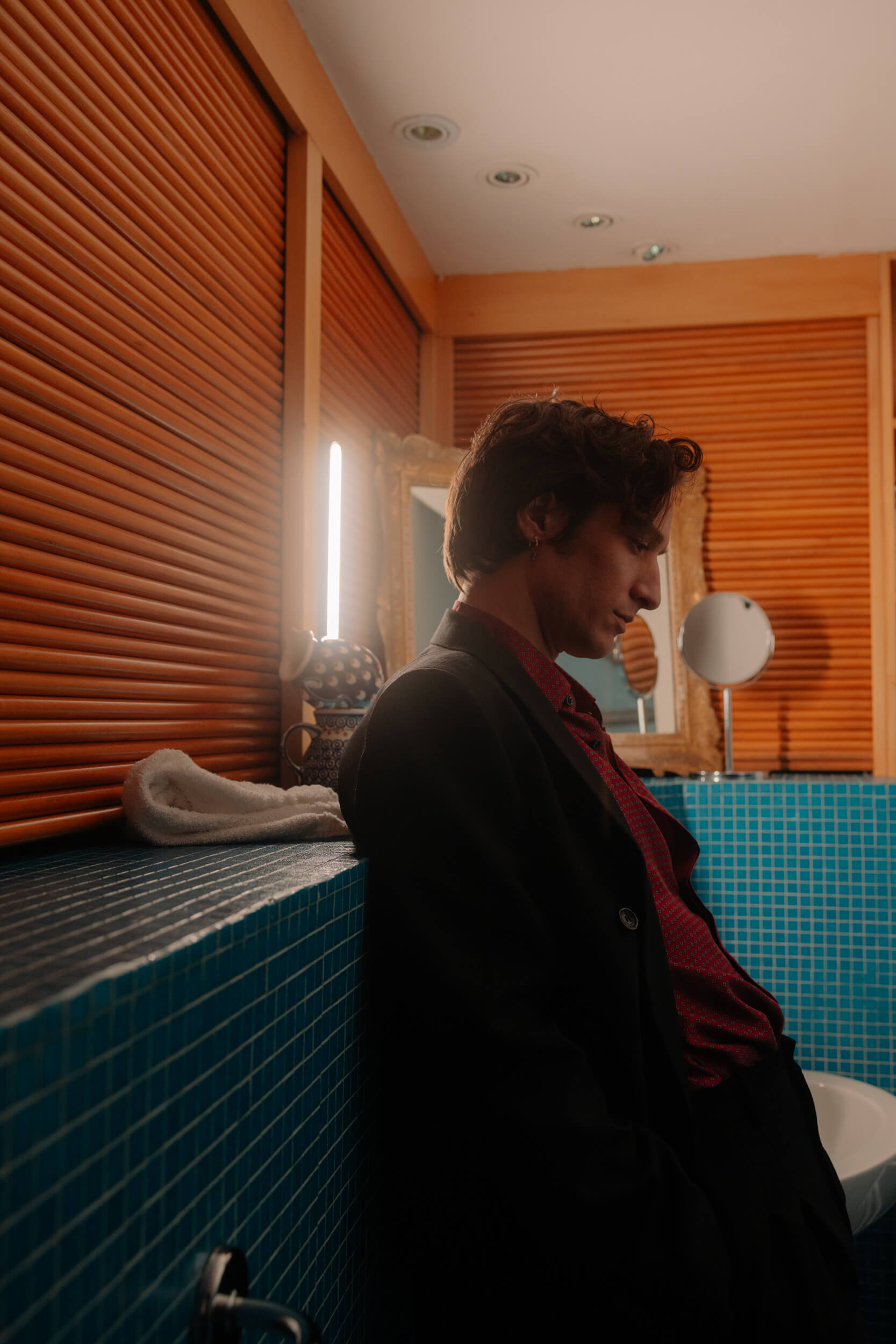
I completely agree.
What has been the biggest “fuck you” moment of your life so far?
Good question! I was supposed to direct a film, and I quit a week before shooting started: I told the producer to screw off. The conditions under which I was supposed to make the film kept feeling wrong, and rather than start by saying, “Let’s see how this goes”, I preferred not to accept those conditions.
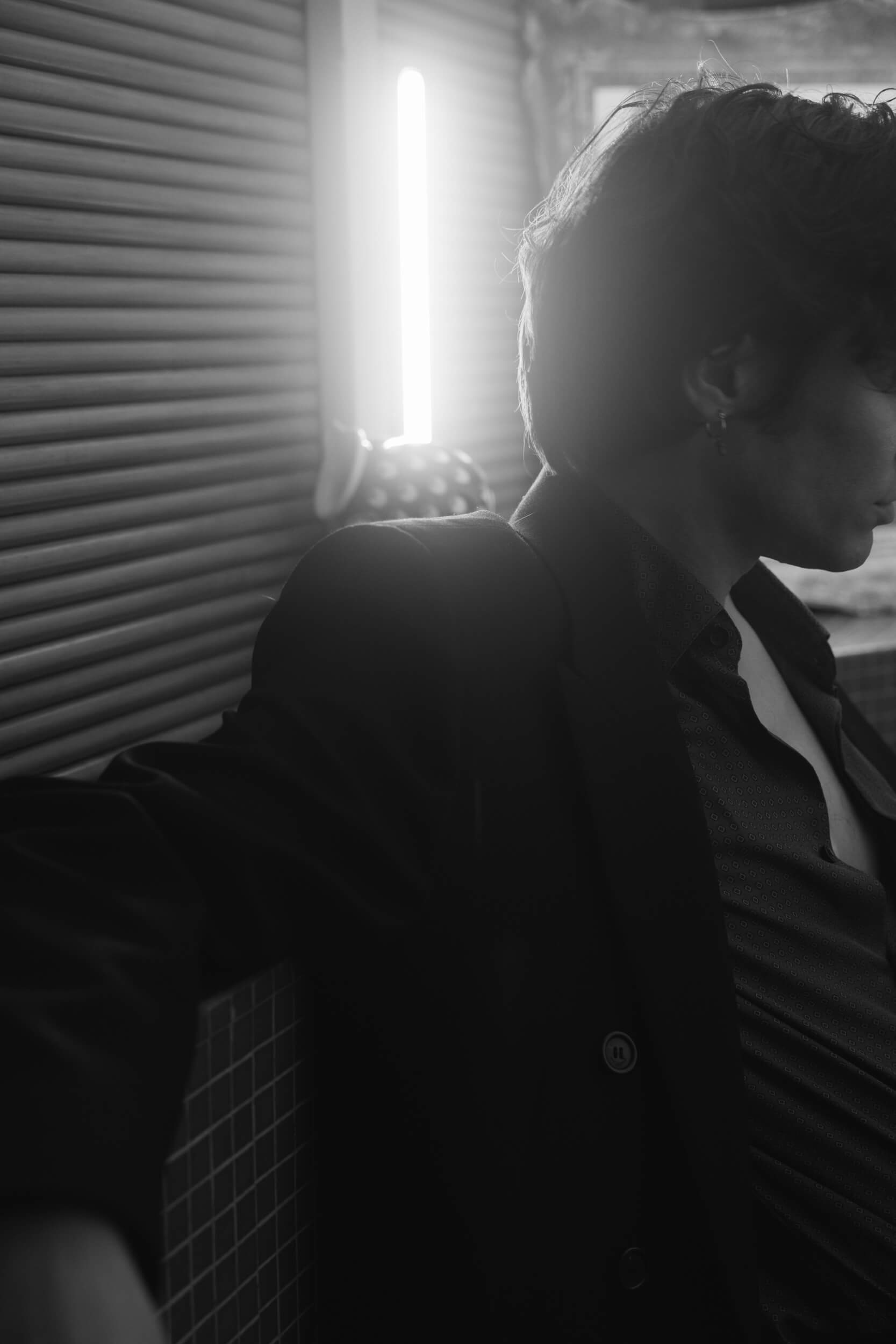
What does feeling comfortable in your own skin mean to you?
I think it means allowing yourself to be observed.
Allowing yourself to be observed is a conditio sine qua non for an actor, but I think for all of us, it’s both our great fear and the monster in the closet. For us actors, it’s our job, but it’s also the hardest thing to do.
So, feeling good in your own skin, in my opinion, is the daily work an actor must do – giving others the chance to observe you.
Sometimes, acting helps a lot with that: transforming yourself, becoming someone else, speaking someone else’s words, through the alibi of a character, talking about yourself while “hiding” behind someone else is a great form of freedom for me. I often feel more comfortable in my own skin when I’m in someone else’s, or when I pretend to be someone else, rather than when I’m in my true skin.
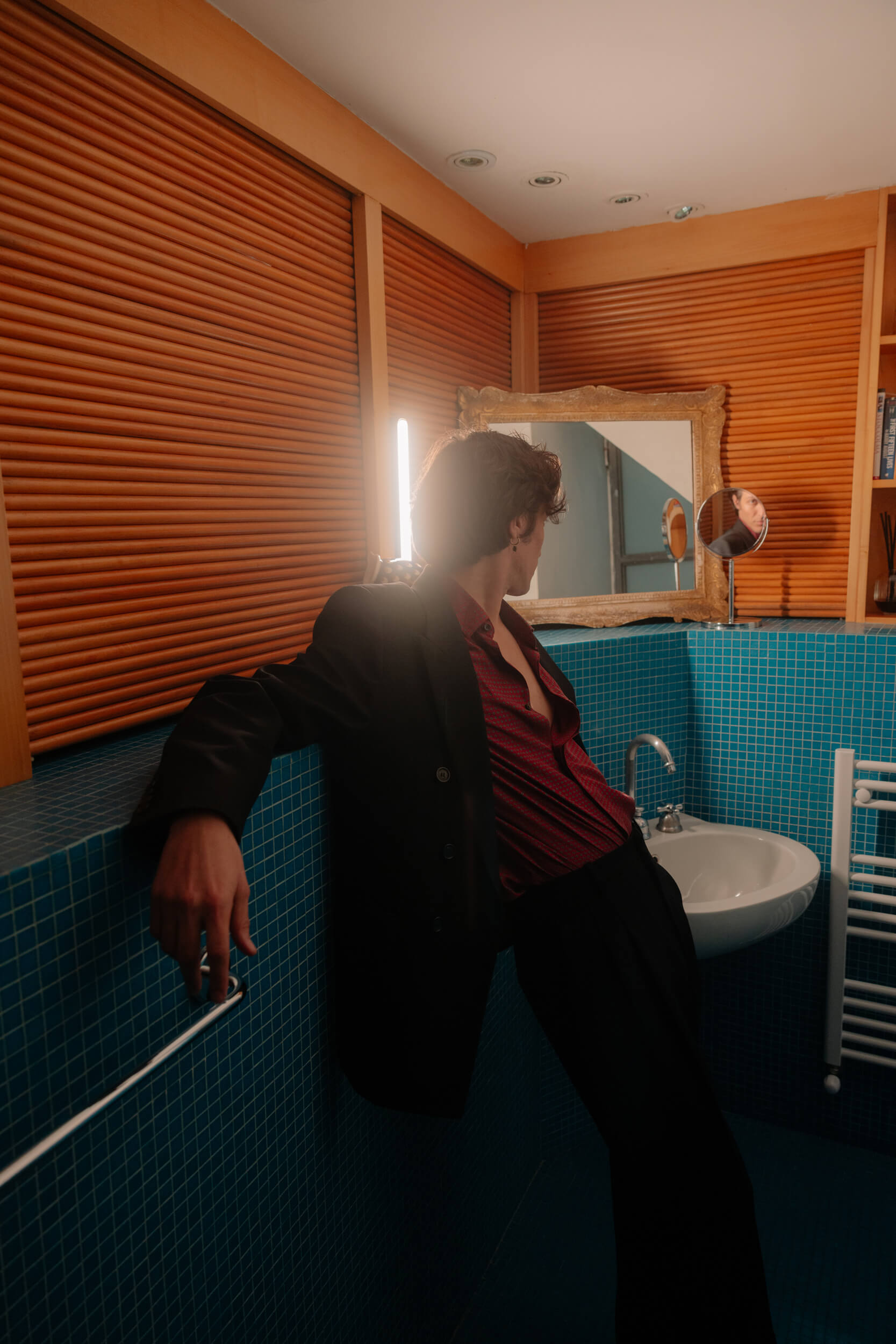
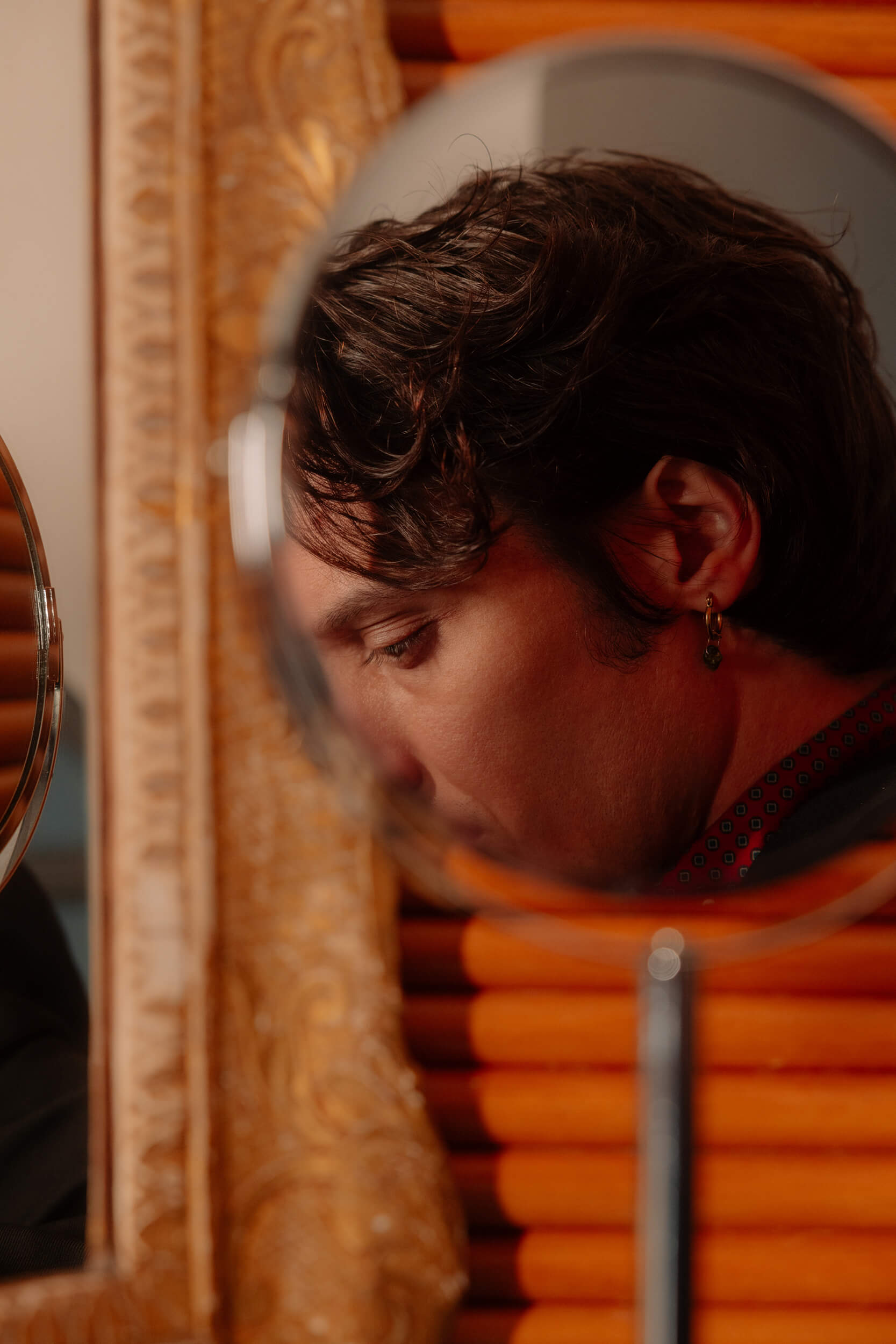
Everyone constantly asks Parthenope this question throughout the film, so we can’t not ask you: what are you thinking about?
In front of me, there’s a walnut tree that looks into my bedroom window and almost enters it, the branches poking through the mosquito net: every now and then, I have to push the window shutters to move it out of the room. I live in Rome, yet I have this walnut tree in the garden of my building. In just a few weeks, I’ll leave this house to move somewhere else, and I’m thinking about how much I’ll miss this walnut tree – it will be one of the things I’ll remember most fondly about this house.
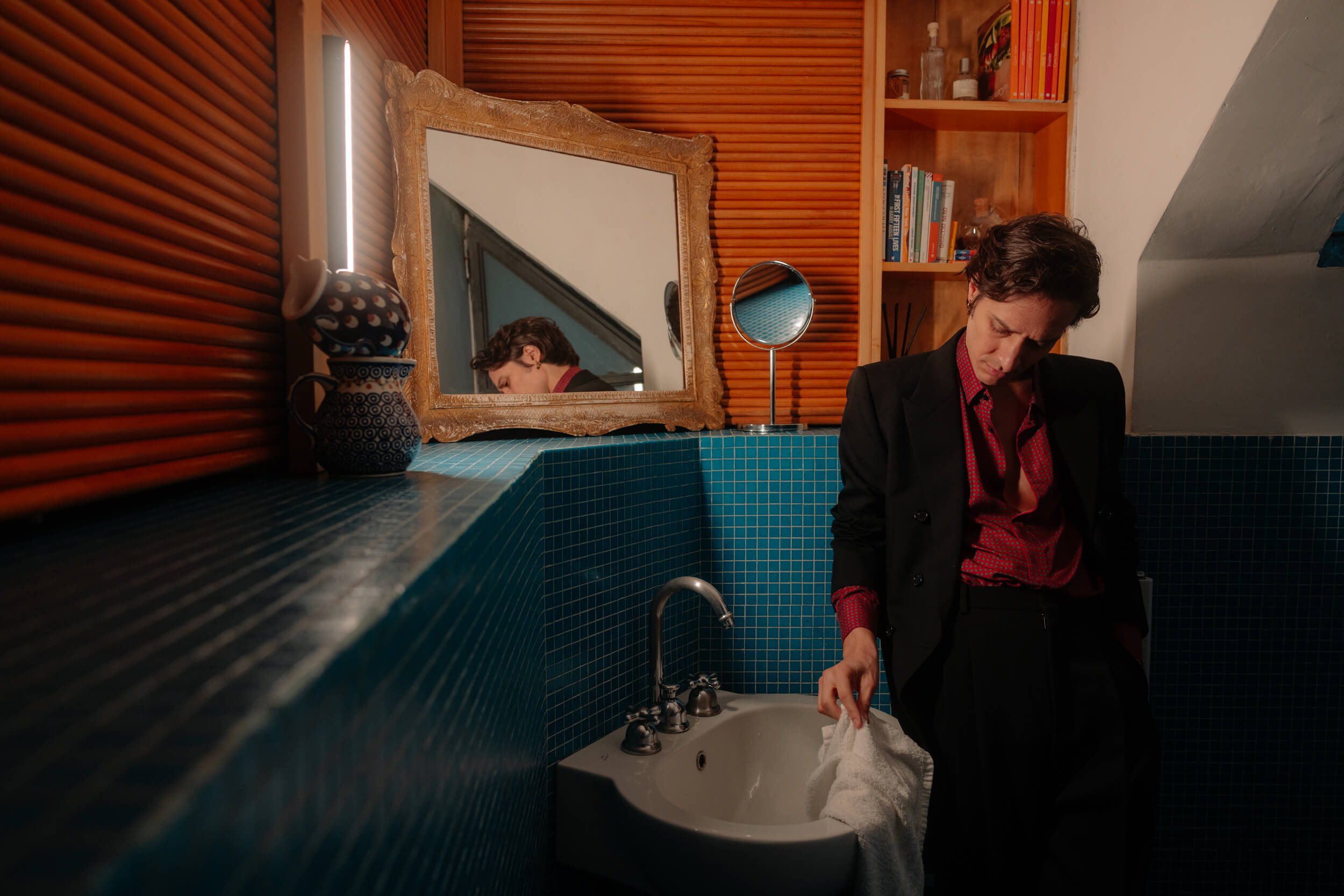
Photos & Video by Johnny Carrano.
Grooming by Sofia Caspani.
Styling by Sara Castelli Gattinara.
Assistant Styling Ginevra Cipolloni.
Thanks to Other srl.
LOOK 1
Total Look: Pence
Shoes: Gianvito Rossi
LOOK 2
Total Look: Brioni
LOOK 3
Total Look: Yves Saint Laurent

